The 17 Best Books on Critical Thinking (to Read in 2024)
All products were independently selected by our editors and contributors. When you buy through links on our site, we may earn an affiliate commission.
The aim of improving your skill of critical thinking isn’t just to be able to reason and give logical arguments about a subject skillfully; your goal is to get to the right answer, to make the right decisions and choices for yourself and others.
Critical thinking helps you:
First , improve the quality of your decisions and judgments, and reevaluate your beliefs objectively.
The human mind is rarely objective. However, mastering the skill of critical thinking keeps your mind objective, at least about those things based on facts.
Take for example the beliefs you have about yourself; Some are based on facts, some on subjective (negative) opinions of others.
Second , become an independent thinker (learn to think for yourself); take ownership of your values, beliefs, judgments, and decisions.
Mastering critical thinking is essential , especially in our modern times, because you must:
- Make a tone of decisions every day;
- Think and come to the right conclusion fast;
- Solve (mostly alone) your problems and issues;
- Weigh carefully facts and information you receive from the dozens of sources you have at your disposal;
- Reevaluate your strategies, beliefs, and habits periodically.
Critical thinking is a skill that you must learn; you’re not born with it. To make your journey a little easier, we’ve gathered the best critical thinking books so you can learn from the masters. Get inspired to become a critical thinker in no time!
The best books on critical thinking:
Table of Contents

1. Critical Thinking: A Beginner’s Guide to Critical Thinking, Better Decision Making, and Problem Solving – Jennifer Wilson
2. wait, what: and life’s other essential questions- james e. ryan, 3. think smarter: critical thinking to improve problem-solving and decision-making skills – michael kallet, 4. brain power: learn to improve your thinking skills – karl albrecht, 5. the art of thinking clearly – rolf dobelli, 6. being logical: a guide to good thinking – d.q. mcinerny, 7. predictably irrational, revised and expanded edition: the hidden forces that shape our decisions – dr. dan ariely, 8. a more beautiful question: the power of inquiry to spark breakthrough ideas – warren berger, 9. a rulebook for arguments – anthony weston, 10. thinking, fast and slow – daniel kahneman, 11. the organized mind: thinking straight in the age of information overload – daniel j. levitin, 12. don’t believe everything you think: the 6 basic mistakes we make in thinking – thomas e. kida, 13. the decision book: 50 models for strategic thinking – mikael krogerus, roman tschäppeler, philip earnhart, jenny piening, 14. weaponized lies: how to think critically in the post-truth era – daniel j. levitin, 15. the demon-haunted world: science as a candle in the dark paperback – carl sagan, ann druyan, 16. how to think about weird things: critical thinking for a new age – theodore schick, lewis vaughn, 17. the 5 elements of effective thinking – edward b. burger, michael starbird.
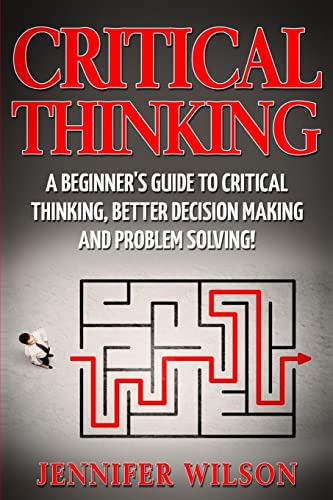
As the title says, this book introduces you to the art of critical thinking. You’ll discover in it:
- What is critical thinking in practice,
- The different thought processes of critical thinking,
- How will your life be better mastering critical thinking,
- The things your brain needs to enjoy exercising critical thinking,
- Techniques you can use for solving problems,
- How to become a better decision maker, Strategies to use in your critical thinking processes,
- Ways to make good decisions when more people (not just you) are involved,
- Tips to frame your questions in order to maximize the efficiency of your critical thinking.

Wisdom comes from observation, learning, practice, and asking the right questions.
Using examples from history, politics, and his own personal life, James e Ryan shows you the importance of knowing how to:
- Ask questions and gain a better understanding,
- Get to be more curious,
- Push yourself to take action,
- Make your relationship stronger,
- And stay focused on the important things in life.
Related: Critical Thinking Examples
The book starts with the five fundamental questions:
- Couldn’t we at least…?
- How can I help…?
- What truly matters….?
Knowing how to formulate, address, and deliver the right questions doesn’t leave room for misunderstandings, misinterpretations; asking the wrong questions will most probably give you a wrong answer.
This book (Wait, What?: And Life’s Other Essential Questions) will make you feel (more) courageous; after all, asking questions thanks courage. Asking yourself and others the right questions helps you make informed decisions and decisive action.

This book is a guide on how to train your brain to work even more for you. The author (Michael Kallet) is a critical thinking trainer and coach and gives you a practical set of tools and techniques for critical thinking in your day-to-day life and business.
If you want a clear, actionable step by step program to:
- Improve your critical thinking skills,
- A better understanding of complex problems and concepts,
- And how to put them in practice, then this book is for you.
Learn how to discover the real issues that need a solution, so you don’t waste your time in trying to solve imaginary problems. Increase your mental toughness, useful and productive thought.

In this book, Karl Albrecht shows you how to:
- Build your mental strength,
- Think more clearly logically and creative,
- Improve your memory,
- Solve problems,
- Make decisions more effectively.
Karl Albrecht talks in this book about the six functional abilities you need to have and become more adaptable and an innovative thinker.
The book is packed with practical exercises, fascinating illustrations, games, and puzzles to improve your mental capabilities.

The art of thinking Clearly by Rolf Dobelli is a window into human psychology and reasoning; how we:
- Make decisions;
- Evaluate choices and options;
- Develop cognitive biases.
This book helps you notice and recognize erroneous thinking and make better choices and decisions, change unwanted behaviors and habits.
It will change the way you think about yourself and life in general because you have in this book 99 short chapters with examples of the most common errors of judgment and how to rectify them.
If you wish to think more clearly, make better decisions and choices, reevaluate your biases, and feel better about yourself, this book is for you.

When you decide you want to study the field of logic more closely and improve your critical thinking, this book might be exactly what you need. It’s written clearly and concisely laying out for you the basic building blocks of logic and critical thinking.
The ancient civilizations understood better than us how important is to study logic and rhetoric. With the help of this book, you’ll bring back into your life these essential things that our modern society forgot and missed to teach you as a child.
Having increased logical thinking doesn’t mean to ignore your emotions. It means to start from your emotions and together, (emotions and logic) to take better decisions and see more clearly your choices to move forward in life.

“Predictably Irrational, The Hidden Forces That Shape Our Decisions” is a book packed with examples of how:
- Irrational are our choices;
- We make decisions on impulse;
- We fool ourselves with optimism- “that must work for me.”
The author presents you, in this book, a large number of mental traps and flawed tendencies which can make your life harder.
After reading this book, you’ll be better informed about a variety of human flaws and how to avoid being trapped by irrational thinking. You’ll be better prepared to make decisions and choices based more on facts rather than subjective personal opinions.

Knowing how to ask the right questions is determining your success about many things in your life:
- Influencing others,
- Getting out of tricky situations,
- Reevaluating your beliefs,
- Offering yourself and others compassion,
- Overcoming mistakes and fears.
Warren Berger shows you in this book examples of people who are successful (partially) because they are experts in asking questions and don’t have preconceived ideas about what the answers should be.
This book helps you avoid wasting your innovative and brilliant ideas by presenting them in the same way over and over and getting nowhere over and over.
Asking yourself (and others) the right questions gives you the opportunity to display your ideas in a way that those around you feel compelled to listen.

This book is impressive because, Anthony Weston gives you a lot of excellent and practical advice, ordered in a logical and clear manner.
The examples in this book are realistic and useful, ranging from deductive to oral arguments, from argumentative essays to arguments by analogy.
Once you read this book you’ll want to have it on hand to sort out all sorts of situations you’ll encounter in your day-to-day life.

Daniel Kahneman, the author of this book, is a renowned psychologist and winner of the Nobel Prize in economics.
In this book, you will discover where you can and cannot trust your intuition; how to use the two systems that drive the way you think.
The first system is fast, intuitive, and emotional; the second system is slower, based on facts, and more logical.
The author argues that knowing how to use these two systems can make a huge difference in how you:
- Design your strategies,
- Predict consequences,
- Avoid cognitive biases,
- (and even simple things like) choosing the colors for your home office.
If you want to improve your critical thinking, know when you should use logic (instead of using emotions), and become mentally stronger this book is definitely for you.

Critical thinking can’t be created in a cluttered mind. It’s like trying to prepare a gourmet meal for your loved ones in a cramped and dysfunctional kitchen.
As if is not enough all the information you store in your mind from what you personally experience every day, our modern times forcefully adds to that information a lot of junk.
The book “The Organized Mind: Thinking Straight in the Age of Information Overload” by Daniel J. Levitin will help you sort out and organized your thoughts with the help of the four components in the human attentional system:
- Mind wandering mode;
- Central executive mode;
- Attentional filter;
- Attentional switch.
The book is showing you how you can improve your critical thinking and make better decisions concerning many areas of your life.
This book can (really) change your life if you’re dealing with procrastination, multitasking, the inability to switch off and block the outside world.
All in all, you’ll be better prepared to think straight in the age of information overload.

Thomas E. Kida talks in this book very elegantly about the six basic mistakes your thinking can make.
- The first mistake is being mesmerized by stories and ignoring the facts or statistics.
- The second mistake is searching to confirm what we already know or believe.
- The third mistake is to discount the role that chance and coincidence play in our life.
- The fourth mistake is believing that what you see it’s always the reality.
- The fifth mistake is to oversimplify things.
- The sixth mistake is to believe (trust) faulty memories.
This book can be for you an eye-opener into critical thinking, accepting who you are as you are, and improving the way you choose and make decisions.

Did you know you have a strategy for everything you do? From brushing your teeth to making new friends? From choosing a career to dealing with difficult people?
Considering you have a strategy for everything you do, it’s only logical the try to improve every day the way you develop your strategies and don’t leave it to chance, habit, or convenience.
“The Decision Book: 50 Models for Strategic Thinking” can improve your critical thinking and help you make your life easier and more enjoyable.
This book is interactive and provokes you to think about some of the strategies that don’t bring you the results you want.
It contains 58 illustrations offering summaries for known strategies such as the Rubber Band Model, the Personal Performance Model, and the Black Swan Model.
This book is for you if you want to improve the flexibility of your thinking, accept challenges more comfortable, feel more in control of your decisions and choices.

From this book, by Daniel Levitin, you’ll learn how to think critically and avoid being manipulated by things like misleading statistics and graphics, extreme view, or fake news.
The book contains three main sections:
- Evaluating numbers – how to read statistics and data to find out what lurks underneath and make a more objective analysis
- Evaluating words – how to assess the information you receive from experts, understanding the difference between incidence and prevalence, risk perceptions, and probabilistic thinking
- Evaluating the world – how to interpret scientific methods for different types of reasoning (induction, deduction, abduction)
This book will help you improve your critical thinking providing you with a lot of food for thought.
You know how in a criminal trial they call two experts that have divergent opinions on the same facts? Depending on whose side they are? This book teaches you to see the truth.

Although written in the 1990s, this bestseller book is still relevant in today’s society.
With both intelligence and compassion, Carl Sagan lays out the importance of education, logic, and science. This book will show you a ton of practical skills for assessing arguments, recognizing logical fallacies, and applying the scientific method.
Sagan felt that reason and logic could make the world a better place.

This book contains invaluable instructions on logic and reason using critical thinking, without being dull or difficult to understand.
Schick and Vaughn effectively laid out the key elements on how to assess evidence, sort through reasons, and recognize when a claim is likely to be accurate, making this book an absolute must-read for all students.
If you want to be better at decision-making based on sound evidence and argument, then this book is for you.

If you ever found yourself stuck on a problem, or having trouble in forming new ideas, this book will guide you in finding creative solutions to life’s difficult challenges.
This book emphasizes the value of effective thinking, how it can be mastered, and how to integrate it into everyday life.
How useful was this post?
Click on a star to rate it!
As you found this post useful...
Share it on social media!
We are sorry that this post was not useful for you!
Let us improve this post!
Tell us how we can improve this post?

Carmen Jacob
- NONFICTION BOOKS
- BEST NONFICTION 2023
- BEST NONFICTION 2024
- Historical Biographies
- The Best Memoirs and Autobiographies
- Philosophical Biographies
- World War 2
- World History
- American History
- British History
- Chinese History
- Russian History
- Ancient History (up to 500)
- Medieval History (500-1400)
- Military History
- Art History
- Travel Books
- Ancient Philosophy
- Contemporary Philosophy
- Ethics & Moral Philosophy
- Great Philosophers
- Social & Political Philosophy
- Classical Studies
- New Science Books
- Maths & Statistics
- Popular Science
- Physics Books
- Climate Change Books
- How to Write
- English Grammar & Usage
- Books for Learning Languages
- Linguistics
- Political Ideologies
- Foreign Policy & International Relations
- American Politics
- British Politics
- Religious History Books
- Mental Health
- Neuroscience
- Child Psychology
- Film & Cinema
- Opera & Classical Music
- Behavioural Economics
- Development Economics
- Economic History
- Financial Crisis
- World Economies
- Investing Books
- Artificial Intelligence/AI Books
- Data Science Books
- Sex & Sexuality
- Death & Dying
- Food & Cooking
- Sports, Games & Hobbies
- FICTION BOOKS
- BEST NOVELS 2024
- BEST FICTION 2023
- New Literary Fiction
- World Literature
- Literary Criticism
- Literary Figures
- Classic English Literature
- American Literature
- Comics & Graphic Novels
- Fairy Tales & Mythology
- Historical Fiction
- Crime Novels
- Science Fiction
- Short Stories
- South Africa
- United States
- Arctic & Antarctica
- Afghanistan
- Myanmar (Formerly Burma)
- Netherlands
- Kids Recommend Books for Kids
- High School Teachers Recommendations
- Prizewinning Kids' Books
- Popular Series Books for Kids
- BEST BOOKS FOR KIDS (ALL AGES)
- Ages Baby-2
- Books for Teens and Young Adults
- THE BEST SCIENCE BOOKS FOR KIDS
- BEST KIDS' BOOKS OF 2023
- BEST BOOKS FOR TEENS OF 2023
- Best Audiobooks for Kids
- Environment
- Best Books for Teens of 2023
- Best Kids' Books of 2023
- Political Novels
- New History Books
- New Historical Fiction
- New Biography
- New Memoirs
- New World Literature
- New Economics Books
- New Climate Books
- New Math Books
- New Philosophy Books
- New Psychology Books
- New Physics Books
- THE BEST AUDIOBOOKS
- Actors Read Great Books
- Books Narrated by Their Authors
- Best Audiobook Thrillers
- Best History Audiobooks
- Nobel Literature Prize
- Booker Prize (fiction)
- Baillie Gifford Prize (nonfiction)
- Financial Times (nonfiction)
- Wolfson Prize (history)
- Royal Society (science)
- Pushkin House Prize (Russia)
- Walter Scott Prize (historical fiction)
- Arthur C Clarke Prize (sci fi)
- The Hugos (sci fi & fantasy)
- Audie Awards (audiobooks)
Make Your Own List
Philosophy Books
The best books on critical thinking, recommended by nigel warburton.

Thinking from A to Z by Nigel Warburton
Do you know your straw man arguments from your weasel words? Nigel Warburton , Five Books philosophy editor and author of Thinking from A to Z, selects some of the best books on critical thinking—and explains how they will help us make better-informed decisions and construct more valid arguments.
Interview by Cal Flyn , Deputy Editor
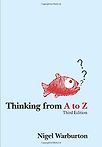
Calling Bullshit: The Art of Skepticism in a Data-Driven World by Carl Bergstrom & Jevin West
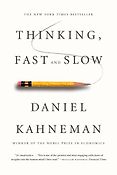
Thinking, Fast and Slow by Daniel Kahneman
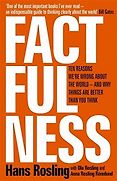
Factfulness: Ten Reasons We're Wrong About The World — And Why Things Are Better Than You Think by Hans Rosling
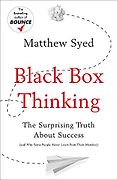
Black Box Thinking: The Surprising Truth About Success by Matthew Syed
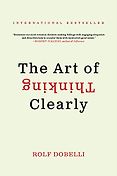
The Art of Thinking Clearly by Rolf Dobelli
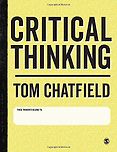
Critical Thinking: Your Guide to Effective Argument, Successful Analysis and Independent Study by Tom Chatfield
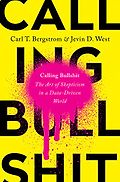
1 Calling Bullshit: The Art of Skepticism in a Data-Driven World by Carl Bergstrom & Jevin West
2 thinking, fast and slow by daniel kahneman, 3 factfulness: ten reasons we're wrong about the world — and why things are better than you think by hans rosling, 4 black box thinking: the surprising truth about success by matthew syed, 5 the art of thinking clearly by rolf dobelli, 6 critical thinking: your guide to effective argument, successful analysis and independent study by tom chatfield.
I t’s been just over two years since you explained to us what critical thinking is all about. Could you update us on any books that have come out since we first spoke?
Calling Bullshit by Carl Bergstrom and Jevin West started life as a course at the University of Washington. It is a book—a handbook really—written with the conviction that bullshit, particularly the kind that is circulated on the Internet, is damaging democracy , and that misinformation and disinformation can have very serious consequences. Bullshitters don’t care about truth. But truth is important, and this book shows why. It is focussed on examples from science and medicine, but ranges more widely too. It’s a lively read. It covers not just verbal bullshit, bullshit with statistics (particularly in relation to big data) and about causation, but also has a chapter on bullshit data visualisations that distract from the content they are about, or present that data in misleading ways. Like all good books on critical thinking this one includes some discussion of the psychology of being taken in by misleading contributions to public debate.
In How To Make the World Add Up , Tim Harford gives us ten rules for thinking better about numbers, together with a Golden Rule (‘Be curious’). Anyone who has listened to his long-running radio series More or Less will know how brilliant Tim is at explaining number-based claims – as I read it, I hallucinated Tim’s reassuring, sceptical, reasonable, amused, and patient voice. He draws on a rich and fascinating range of examples to teach us (gently) how not to be taken in by statistics and poorly supported claims. There is some overlap with Calling Bullshit , but they complement each other. Together they provide an excellent training in how not to be bamboozled by data-based claims.
[end of update. The original interview appears below]
___________________________
We’re here to talk about critical thinking. Before we discuss your book recommendations, I wonder if you would first explain: What exactly is critical thinking, and when should we be using it?
There’s a whole cluster of things that go under the label ‘critical thinking’. There’s what you might call formal logic , the most extreme case of abstractions. For example take the syllogism: if all men are mortal, and Socrates is a man, you can deduce from that structure of arguments that Socrates is mortal. You could put anything in the slots of ‘men,’ ‘Socrates,’ ‘mortal’, and whatever you put in, the argument structure remains valid. If the premises are true, the conclusion must be true. That kind of logic, which can be represented using letters and signs rather than words, has its place. Formal logic is a quasi-mathematical (some would say mathematical) subject.
But that’s just one element of critical thinking. Critical thinking is broader, though it encompasses that. In recent years, it’s been very common to include discussion of cognitive biases—the psychological mistakes we make in reasoning and the tendencies we have to think in certain patterns which don’t give us reliably good results. That’s another aspect: focussing on the cognitive biases is a part of what’s sometimes called ‘informal logic’, the sorts of reasoning errors that people make, which can be described as fallacious. They’re not, strictly speaking, logical fallacies, always. Some of them are simply psychological tendencies that give us unreliable results.
The gambler’s fallacy is a famous one: somebody throwing a die that isn’t loaded has thrown it three times without getting a six, and then imagines that, by some kind of law of averages, the fourth time they’re more likely to get a six, because they haven’t yet got one yet. That’s just a bad kind of reasoning, because each time that you roll the dice, the odds are the same: there’s a one in six chance of throwing a six. There’s no cumulative effect and a dice doesn’t have a memory. But we have this tendency, or certainly gamblers often do, to think that somehow the world will even things out and give you a win if you’ve had a series of losses. That’s a kind of informal reasoning error that many of us make, and there are lots of examples like that.
I wrote a little book called Thinking from A to Z which was meant to name and explain a whole series of moves and mistakes in thinking. I included logic, some cognitive biases, some rhetorical moves, and also (for instance) the topic of pseudo-profundity, whereby people make seemingly deep statements that are in fact shallow. The classical example is to give a seeming paradox—to say, for example ‘knowledge is just a kind of ignorance,’ or ‘virtue is only achieved through vice.’ Actually, that’s just a rhetorical trick, and once you see it, you can generate any number of such ‘profundities’. I suppose that would fall under rhetoric, the art of persuasion: persuading people that you are a deeper thinker than you are. Good reasoning isn’t necessarily the best way to persuade somebody of something, and there are many devious tricks that people use within discussion to persuade people of a particular position. The critical thinker is someone who recognises the moves, can anatomise the arguments, and call them to attention.
So, in answer to your question: critical thinking is not just pure logic . It’s a cluster of things. But its aim is to be clear about what is being argued, what follows from the given evidence and arguments, and to detect any cognitive biases or rhetorical moves that may lead us astray.
Many of the terms you define and illustrate in Thinking from A to Z— things like ‘straw man’ arguments and ‘weasel words’—have been creeping into general usage. I see them thrown around on Twitter. Do you think that our increased familiarity with debate, thanks to platforms like Twitter, has improved people’s critical thinking or made it worse?
I think that improving your critical thinking can be quite difficult. But one of the ways of doing it is to have memorable labels, which can describe the kind of move that somebody’s making, or the kind of reasoning error, or the kind of persuasive technique they’re using.
For example, you can step back from a particular case and see that somebody’s using a ‘weak analogy’. Once you’re familiar with the notion of a weak analogy, it’s a term that you can use to draw attention to a comparison between two things which aren’t actually alike in the respects that somebody is implying they are. Then the next move of a critical thinker would be to point out the respects in which this analogy doesn’t hold, and so demonstrate how poor it is at supporting the conclusion provided. Or, to use the example of weasel words—once you know that concept, it’s easier to spot them and to speak about them.
Social media, particularly Twitter, is quite combative. People are often looking for critical angles on things that people have said, and you’re limited in words. I suspect that labels are probably in use there as a form of shorthand. As long as they’re used in a precise way, this can be a good thing. But remember that responding to someone’s argument with ‘that’s a fallacy’, without actually spelling out what sort of fallacy it is supposed to be, is a form of dismissive rhetoric itself.
There are also a huge number of resources online now which allow people to discover definitions of critical thinking terms. When I first wrote Thinking from A to Z , there weren’t the same number of resources available. I wrote it in ‘A to Z’ form, partly just as a fun device that allows for lots of cross references, but partly because I wanted to draw attention to the names of things. Naming the moves is important.
“People seem to get a kick out of the idea of sharing irrelevant features—it might be a birthday or it might be a hometown—with somebody famous. But so what?”
The process of writing the book improved my critical thinking quite a lot, because I had to think more precisely about what particular terms meant and find examples of them that were unambiguous. That was the hardest thing, to find clear-cut examples of the various moves, to illustrate them. I coined some of the names myself: there’s one in there which is called the ‘Van Gogh fallacy,’ which is the pattern of thought when people say: ‘Well, Van Gogh had red hair, was a bit crazy, was left-handed, was born on the 30th of March, and, what do you know, I share all those things’—which I do happen to do—‘and therefore I must be a great genius too.’
I love that. Well, another title that deals with psychological biases is the first critical thinking book that you want to discuss, Daniel Kahneman’s Thinking Fast and Slow . Why did you choose this one?
This is an international bestseller by the Nobel Prize-winning behavioural economist—although he’s principally a psychologist—Daniel Kahneman. He developed research with Amos Tversky, who unfortunately died young. I think it would have been a co-written book otherwise. It’s a brilliant book that summarizes their psychological research on cognitive biases (or its patterns of thinking) which all of us are prone to, which aren’t reliable.
There is a huge amount of detail in the book. It summarizes a lifetime of research—two lifetimes, really. But Kahneman is very clear about the way he describes patterns of thought: as using either ‘System One’ or ‘System Two.’ System One is the fast, intuitive, emotional response to situations where we jump to a conclusion very quickly. You know: 2 + 2 is 4. You don’t think about it.
System Two is more analytical, conscious, slower, methodical, deliberative. A more logical process, which is much more energy consuming. We stop and think. How would you answer 27 × 17? You’d have to think really hard, and do a calculation using the System Two kind of thinking. The problem is that we rely on this System One—this almost instinctive response to situations—and often come out with bad answers as a result. That’s a framework within which a lot of his analysis is set.
I chose this book because it’s a good read, and it’s a book you can keep coming back to—but also because it’s written by a very important researcher in the area. So it’s got the authority of the person who did the actual psychological research. But it’s got some great descriptions of the phenomena he researches, I think. Anchoring, for instance. Do you know about anchoring?
I think so. Is that when you provide an initial example that shapes future responses? Perhaps you’d better explain it.
That’s more or less it. If you present somebody with an arbitrary number, psychologically, most people seem prone when you ask them a question to move in the direction of that number. For instance, there’s an experiment with judges. They were being asked off the cuff: What would be a good sentence for a particular crime, say shoplifting? Maybe they’d say it would be a six-month sentence for a persistent shoplifter.
But if you prime a judge by giving an anchoring number—if you ask, ‘Should the sentence for shoplifting be more than nine months?’ They’re more like to say on average that the sentence should be eight months than they would have been otherwise. And if you say, ‘Should it be punished by a sentence of longer than three months?’ they’re more likely to come down in the area of five , than they would otherwise.
So the way you phrase a question, by introducing these numbers, you give an anchoring effect. It sways people’s thinking towards that number. If you ask people if Gandhi was older than 114 years old when he died, people give a higher answer than if you just asked them: ‘How old was Gandhi when he died?’
I’ve heard this discussed in the context of charity donations. Asking if people will donate, say, £20 a month returns a higher average pledge than asking for £1 a month.
People use this anchoring technique often with selling wine on a list too. If there’s a higher-priced wine for £75, then somehow people are more drawn to one that costs £40 than they would otherwise have been. If that was the most expensive one on the menu, they wouldn’t have been drawn to the £40 bottle, but just having seen the higher price, they seem to be drawn to a higher number. This phenomenon occurs in many areas.
And there are so many things that Kahneman covers. There’s the sunk cost fallacy, this tendency that we have when we give our energy, or money, or time to a project—we’re very reluctant to stop, even when it’s irrational to carry on. You see this a lot in descriptions of withdrawal from war situations. We say: ‘We’ve given all those people’s lives, all that money, surely we’re not going to stop this campaign now.’ But it might be the rational thing to do. All that money being thrown there, doesn’t mean that throwing more in that direction will get a good result. It seems that we have a fear of future regret that outweighs everything else. This dominates our thinking.
Support Five Books
Five Books interviews are expensive to produce. If you're enjoying this interview, please support us by donating a small amount .
What Kahneman emphasizes is that System One thinking produces overconfidence based on what’s often an erroneous assessment of a situation. All of us are subject to these cognitive biases, and that they’re extremely difficult to remove. Kahneman’s a deeply pessimistic thinker in some respects; he recognizes that even after years of studying these phenomena he can’t eliminate them from his own thinking. I interviewed him for a podcast once , and said to him: ‘Surely, if you teach people critical thinking, they can get better at eliminating some of these biases.’ He was not optimistic about that. I’m much more optimistic than him. I don’t know whether he had empirical evidence to back that up, about whether studying critical thinking can increase your thinking abilities. But I was surprised how pessimistic he was.
Interesting.
Unlike some of the other authors that we’re going to discuss . . .
Staying on Kahneman for a moment, you mentioned that he’d won a Nobel Prize, not for his research in psychology per se but for his influence on the field of economics . His and Tversky’s ground-breaking work on the irrationality of human behaviour and thinking forms the spine of a new field.
Let’s look at Hans Rosling’s book next, this is Factfulness . What does it tell us about critical thinking?
Rosling was a Swedish statistician and physician, who, amongst other things, gave some very popular TED talks . His book Factfulness , which was published posthumously—his son and daughter-in-law completed the book—is very optimistic, so completely different in tone from Kahneman’s. But he focuses in a similar way on the ways that people make mistakes.
We make mistakes, classically, in being overly pessimistic about things that are changing in the world. In one of Rosling’s examples he asks what percentage of the world population is living on less than $2 a day. People almost always overestimate that number, and also the direction in which things are moving, and the speed in which they’re moving. Actually, in 1966, half of the world’s population was in extreme poverty by that measure, but by 2017 it was only 9%, so there’s been a dramatic reduction in global poverty. But most people don’t realise this because they don’t focus on the facts, and are possibly influenced by what they may have known about the situation in the 1960s.
If people are asked what percentage of children are vaccinated against common diseases, they almost always underestimate it. The correct answer is a very high proportion, something like 80%. Ask people what the life expectancy for every child born today is, the global average, and again they get it wrong. It’s over 70 now, another surprisingly high figure. What Rosling’s done as a statistician is he’s looked carefully at the way the world is.
“Pessimists tend not to notice changes for the better”
People assume that the present is like the past, so when they’ve learnt something about the state of world poverty or they’ve learnt about health, they often neglect to take a second reading and see the direction in which things are moving, and the speed with which things are changing. That’s the message of this book.
It’s an interesting book; it’s very challenging. It may be over-optimistic. But it does have this startling effect on the readers of challenging widely held assumptions, much as Steven Pinker ‘s The Better Angels of Our Nature has done. It’s a plea to look at the empirical data, and not just assume that you know how things are now. But pessimists tend not to notice changes for the better. In many ways, though clearly not in relation to global warming and climate catastrophe, the statistics are actually very good for humanity.
That’s reassuring.
So this is critical thinking of a numerical, statistical kind. It’s a bit different from the more verbally-based critical thinking that I’ve been involved with. I’m really interested to have my my assumptions challenged, and Factfulness is a very readable book. It’s lively and thought-provoking.
Coming back to what you said about formal logic earlier, statistics is another dense subject which needs specialist training. But it’s one that has a lot in common with critical thinking and a lot of people find very difficult—by which I mean, it’s often counter-intuitive.
One of the big problems for an ordinary reader looking at this kind of book is that we are not equipped to judge the reliability of his sources, and so the reliability of the conclusions that he draws. I think we have to take it on trust and authority and hope that, given the division of intellectual labour, there are other statisticians looking at his work and seeing whether he was actually justified in drawing the conclusions that he drew. He made these sorts of public pronouncements for a long time and responded to critics.
But you’re right that there is a problem here. I believe that most people can equip themselves with tools for critical thinking that work in everyday life. They can learn something about cognitive biases; they can learn about reasoning and rhetoric, and I believe that we can put ourselves as members of a democracy in a position where we think critically about the evidence and arguments that are being presented to us, politically and in the press. That should be open to all intelligent people, I think. It is not a particularly onerous task to equip yourself with a basic tools of thinking clearly.
Absolutely. Next you wanted to talk about Five Books alumnus Matthew Syed ‘s Black Box Thinking .
Yes, quite a different book. Matthew Syed is famous as a former international table tennis player, but—most people probably don’t know this—he has a first-class degree in Philosophy, Politics and Economics (PPE) from Oxford as well.
This book is really interesting. It’s an invitation to think differently about failure. The title, Black Box Thinking, comes from the black boxes which are standardly included in every passenger aircraft, so that if an accident occurs there’s a recording of the flight data and a recording of the audio communications as the plane goes down. When there’s a crash, rescuers always aim to recover these two black boxes. The data is then analysed, the causes of the crash, dissected and scrutinized, and the information shared across the aeronautic industry and beyond.
Obviously, everybody wants to avoid aviation disasters because they’re so costly in terms of loss of human life. They undermine trust in the whole industry. There’s almost always some kind of technical or human error that can be identified, and everybody can learn from particular crashes. This is a model of an industry where, when there is a failure, it’s treated as a very significant learning experience, with the result that airline travel has become a very safe form of transport.
This contrasts with some other areas of human endeavour, such as, sadly, much of healthcare, where the information about failures often isn’t widely shared. This can be for a number of reasons: there may be a fear of litigation—so if a surgeon does something unorthodox, or makes a mistake, and somebody as a result doesn’t survive an operation, the details of exactly what happened on the operating table will not be widely shared, typically, because there is this great fear of legal comeback.
The hierarchical aspects of the medical profession may have a part to play here, too. People higher up in the profession are able to keep a closed book, and not share their mistakes with others, because it might be damaging to their careers for people to know about their errors. There has been, historically anyway, a tendency for medical negligence and medical error, to be kept very quiet, kept hidden, hard to investigate.
“You can never fully confirm an empirical hypothesis, but you can refute one by finding a single piece of evidence against it”
What Matthew Syed is arguing is that we need to take a different attitude to failure and see it as the aviation industry does. He’s particularly interested in this being done within the healthcare field, but more broadly too. It’s an idea that’s come partly from his reading of the philosopher Karl Popper, who described how science progresses not by proving theories true, but by trying to disprove them. You can never fully confirm an empirical hypothesis, but you can refute one by finding a single piece of evidence against it. So, in a sense, the failure of the hypothesis is the way by which science progresses: conjecture followed by refutation, not hypothesis followed by confirmation.
As Syed argues, we progress in all kinds of areas is by making mistakes. He was a superb table-tennis player, and he knows that every mistake that he made was a learning experience, at least potentially, a chance to improve. I think you’d find the same attitude among musicians, or in areas where practitioners are very attentive to the mistakes that they make, and how those failures can teach them in a way that allows them to make a leap forward. The book has a whole range of examples, many from industry, about how different ways of thinking about failure can improve the process and the output of particular practices.
When we think of bringing up kids to succeed, and put emphasis on avoiding failure, we may not be helping them develop. Syed’s argument is that we should make failure a more positive experience, rather than treat it as something that’s terrifying, and always to be shied away from. If you’re trying to achieve success, and you think, ‘I have to achieve that by accumulating other successes,’ perhaps that’s the wrong mindset to achieve success at the higher levels. Perhaps you need to think, ‘Okay, I’m going to make some mistakes, how can I learn from this, how can I share these mistakes, and how can other people learn from them too?’
That’s interesting. In fact, just yesterday I was discussing a book by Atul Gawande, the surgeon and New Yorker writer, called The Checklist Manifesto . In that, Gawande also argues that we should draw from the success of aviation, in that case, the checklists that they run through before take-off and so on, and apply it to other fields like medicine. A system like this is aiming to get rid of human error, and I suppose that’s what critical thinking tries to do, too: rid us of the gremlins in machine.
Well, it’s also acknowledging that when you make an error, it can have disastrous consequence. But you don’t eliminate errors just by pretending they didn’t occur. With the Chernobyl disaster , for instance, there was an initial unwillingness to accept the evidence in front of people’s eyes that a disaster had occurred, combined with a fear of being seen to have messed up. There’s that tendency to think that everything’s going well, a kind of cognitive bias towards optimism and a fear of being responsible for error, but it’s also this unwillingness to see that in certain areas, admission of failure and sharing of the knowledge that mistakes have occurred is the best way to minimize failure in the future.
Very Beckettian . “Fail again. Fail better.”
Absolutely. Well, shall we move onto to Rolf Dobelli’s 2013 book, The Art of Thinking Clearly ?
Yes. This is quite a light book in comparison with the others. It’s really a summary of 99 moves in thinking, some of them psychological, some of them logical, some of them social. What I like about it is that he uses lots of examples. Each of the 99 entries is pretty short, and it’s the kind of book you can dip into. I would think it would be very indigestible to read it from cover to cover, but it’s a book to keep going back to.
I included it because it suggests you can you improve your critical thinking by having labels for things, recognising the moves, but also by having examples which are memorable, through which you can learn. This is an unpretentious book. Dobelli doesn’t claim to be an original thinker himself; he’s a summariser of other people’s thoughts. What he’s done is brought lots of different things together in one place.
Just to give a flavour of the book: he’s got a chapter on the paradox of choice that’s three pages long called ‘Less is More,’ and it’s the very simple idea that if you present somebody with too many choices, rather than freeing them and improving their life and making them happier, it wastes a lot of their time, even destroys the quality of their life.
“If you present somebody with too many choices, it wastes a lot of their time”
I saw an example of this the other day in the supermarket. I bumped into a friend who was standing in front of about 20 different types of coffee. The type that he usually buys wasn’t available, and he was just frozen in this inability to make a decision between all the other brands that were in front of him. If there’d only been one or two, he’d have just gone for one of those quickly.
Dobelli here is summarising the work of psychologist Barry Schwartz who concluded that generally, a broader selection leads people to make poorer decisions for themselves. We think going into the world that what we need is more choice, because that’ll allow us to do the thing we want to do, acquire just the right consumable, or whatever. But perhaps just raising that possibility, the increased number of choices will lead us to make poorer choices than if we had fewer to choose between.
Now, that’s the descriptive bit, but at the end of this short summary, he asks ‘So what can you do about this practically?’ His answer is that you should think carefully about what you want before you look at what’s on offer. Write down the things you think you want and stick to them. Don’t let yourself be swayed by further choices. And don’t get caught up in a kind of irrational perfectionism. This is not profound advice, but it’s stimulating. And that’s typical of the book.
You can flip through these entries and you can take them or leave them. It’s a kind of self-help manual.
Oh, I love that. A critical thinking self-help book .
It really is in that self-help genre, and it’s nicely done. He gets in and out in a couple of pages for each of these. I wouldn’t expect this to be on a philosophy reading list or anything like that, but it’s been an international bestseller. It’s a clever book, and I think it’s definitely worth dipping into and coming back to. The author is not claiming that it is the greatest or most original book in the world; rather, it’s just a book that’s going to help you think clearly. That’s the point.
Absolutely. Let’s move to the final title, Tom Chatfield’s Critical Thinking: Your Guide to Effective Argument, Successful Analysis and Independent Study . We had Tom on Five Books many moons ago to discuss books about computer games . This is rather different. What makes it so good?
Well, this is a different kind of book. I was trying to think about somebody reading this interview who wants to improve their thinking. Of the books I’ve discussed, the ones that are most obviously aimed at that are Black Box Thinking , the Dobelli book, and Tom Chatfield’s Critical Thinking . The others are more descriptive or academic. But this book is quite a contrast with the Dobelli’s. The Art of Thinking Clearly is a very short and punchy book, while Tom’s is longer, and more of a textbook. It includes exercises, with summaries in the margins, it’s printed in textbook format. But that shouldn’t put a general reader off, because I think it’s the kind of thing you can work through yourself and dip into.
It’s clearly written and accessible, but it is designed to be used on courses as well. Chatfield teaches a point, then asks you to test yourself to see whether you’ve learnt the moves that he’s described. It’s very wide-ranging: it includes material on cognitive biases as well as more logical moves and arguments. His aim is not simply to help you think better, and to structure arguments better, but also to write better. It’s the kind of book that you might expect a good university to present to the whole first year intake, across a whole array of courses. But I’m including it here more as a recommendation for the autodidact. If you want to learn to think better: here is a course in the form of a book. You can work through this on your own.
It’s a contrast with the other books as well, so that’s part of my reason for putting it in there, so there’s a range of books on this list.
Definitely. I think Five Books readers, almost by definition, tend towards autodidacticism, so this is a perfect book recommendation. And, finally, to close: do you think that critical thinking is something that more people should make an effort to learn? I suppose the lack of it might help to explain the rise of post-truth politics.
It’s actually quite difficult to teach critical thinking in isolation. In the Open University’s philosophy department, when I worked there writing and designing course materials, we decided in the end to teach critical thinking as it arose in teaching other content: by stepping back from time to time to look at the critical thinking moves being made by philosophers, and the critical thinking moves a good student might make in response to them. Pedagogically, that often works much better than attempting to teach critical thinking as a separate subject in isolation.
This approach can work in scientific areas too. A friend of mine has run a successful university course for zoologists on critical thinking, looking at correlation and cause, particular types of rhetoric that are used in write ups and experiments, and so on, but all the time driven by real examples from zoology. If you’ve got some subject matter, and you’ve got examples of people reasoning, and you can step back from it, I think this approach can work very well.
But in answer to your question, I think that having some basic critical thinking skills is a prerequisite of being a good citizen in a democracy . If you are too easily swayed by rhetoric, weak at analysing arguments and the ways that people use evidence, and prone to all kinds of biases that you are unaware of, how can you engage politically? So yes, all of us can improve our critical thinking skills, and I do believe that that is an aspect of living the examined life that Socrates was so keen we all should do.
December 4, 2020
Five Books aims to keep its book recommendations and interviews up to date. If you are the interviewee and would like to update your choice of books (or even just what you say about them) please email us at [email protected]
Nigel Warburton
Nigel Warburton is a freelance philosopher, writer and host of the podcast Philosophy Bites . Featuring short interviews with the world's best philosophers on bite-size topics, the podcast has been downloaded more than 40 million times. He is also our philosophy editor here at Five Books , where he has been interviewing other philosophers about the best books on a range of philosophy topics since 2013 (you can read all the interviews he's done here: not all are about philosophy). In addition, he's recommended books for us on the best introductions to philosophy , the best critical thinking books, as well as some of the key texts to read in the Western canon . His annual recommendations of the best philosophy books of the year are among our most popular interviews on Five Books . As an author, he is best known for his introductory philosophy books, listed below:
We ask experts to recommend the five best books in their subject and explain their selection in an interview.
This site has an archive of more than one thousand seven hundred interviews, or eight thousand book recommendations. We publish at least two new interviews per week.
Five Books participates in the Amazon Associate program and earns money from qualifying purchases.
© Five Books 2024
Best Books on Critical Thinking
Dive into the realm of logic and reason with this collection – the most recommended books on critical thinking, curated based on frequent recommendations from leading book blogs and publications..
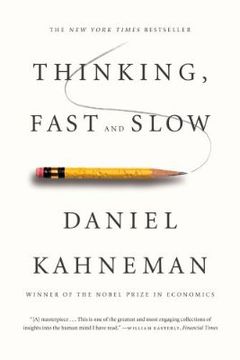

14 Of The Best Critical Thinking Books That Come Packed With Examples
Anthony metivier.
- December 12, 2022
Podcast: Download
Subscribe: Apple Podcasts | RSS

However, few of them come packed with examples.
Even fewer come with exercises.
Examples and exercises are important because critical thinking is not just something you learn.
It’s something you develop through practical application.
Here’s another problem that might be frustrating you if you’re looking for the best critical thinking books:
A lot of them are either irrelevant, “dumbed-down” for the mass market, or already abandoned by their authors.
For example, the famous Thinking, Fast and Slow on just about every list has big problems.
Its author, Daniel Khaneman has agreed that several entire chapters need to be removed in a future edition.
The reproducibility problem. Many of the studies he refers to weren’t scientifically valid.
But critical thinking is based on reproducible models.
So on this page, let’s dig into a comprehensive list of critical thinking books that won’t go out of date.
The 14 Best Critical Thinking Books Packed With Examples For Improving Your Mind
As you go through these examples, consider your specific goals.
As you’ll see, each of these examples are related, but each has different strengths.
You’ll want to beef up on each of these areas, but as you gather your collection, I suggest you start with where you currently feel you need the most help.
One: Scientific Critical Thinking
In Critical Thinking for Better Learning: New Insights from Cognitive Science , Carole Hamilton helps you understand how the brain creates categories in the mind.

Knowledge of how your mind works helps you tap into how your memory deals with examples and analogies that can improve your thinking skills.
Some of the best parts of this book teach you:
- How to study topics thoroughly so that you can think critically about them.
- How to develop creative analogies so you can see the “shape” and dynamics of larger topics.
- Threshold concepts, which are “the central, defining truths in a given discipline, the ideas that open a gateway to deeper understanding.”
- Why some ideas are obvious to certain people but take others a long time to learn.
As an example of how this book helped me, when I was working on my Art of Memory project, it reminded me to read both the historical summary and also the specific books about memory during that period. This is what Hamilton means by knowing the “shape” of a topic.
Other great aspects of this book include its points on:
- How beliefs can distort facts
- Who really benefits and who suffered from environmental damage in the world
- The concept of opportunity cost
- How to assess critical thinking
It gives examples of each and concludes strong with its best tip:
Study real problems and how they were solved, and then recall these frequently to test your memory for accuracy about the details.
Two: A Jargon Free Toolkit
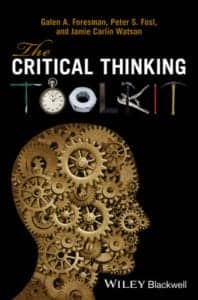
Critical thinking often involves a lot of complex terminology. You have to learn about antecedents in logic and the concept of paraconsistencies .
But if you’re just beginning and don’t have a Memory Palace , such terms can be hard to learn and remember.
Enter The Critical Thinking Toolkit .
This book provides a wonderful introduction with examples from:
- Political science
Three: How To Think About Arguments
We all get into arguments.
That’s not a problem, but the ways we use language while arguing often causes more problems than necessary.
Enter The Uses of Argument by Stephen E. Toulmin.
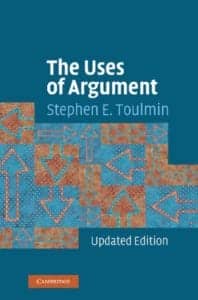
But in this excellent book, Toulmin shows you:
- What it means to make a valid argument
- How to lay out valid arguments
- The difference between working logic and idealised logic
- How that validity must be intra-field, not inter-field (so that you approach critical thinking comparatively)
It boils down to this:
Arguments have patterns and we can learn to perceive those patterns.
One pro tip in this book is to find ways to see logic and critical thinking as historical.
When you know how logic has changed over time, you’re able to note the patterns that shape how we communicate and use them better.
That’s just one benefit. Here are 11 more benefits of critical thinking you can expect after reading the books on this page.
Four: Validity In Your Thinking
I’ll never forget hearing The Amazing Kreskin discuss hypnosis. He said:
“Hypnosis is nothing more than the acceptance of a suggestion.”

If you don’t have much time to learn how this is happening to you, I suggest Critical Thinking : A Concise Guide by Tracy Bowell and Gary Kemp.
This book’s strength is how it helps you determine whether an argument is valid.
To do so, the authors teach you the connection between critical thinking and symbolic logic, informal logic and formal logic.
You also learn how to determine which parts of an argument are relevant. You get real world examples with detailed commentary on each.
A v Hoare is one of my favorite examples. In it, you learn about how the amount of detail shapes our perceptions. You also learn how to determine what information is valuable to properly assess the context and shape of an argument.
Five: How To Stop Thinking Against Yourself
I used to think very darkly.
Little did I know that I was using my thoughts against myself, practically making it impossible to see opportunities.
Then I discovered The Luck Factor by Richard Wiseman.
This book not only goes through numerous examples of how people use cynical thinking against themselves. It also gives powerful exercises that help your critical thinking skills see opportunities your own thinking patterns might be hiding from you.
Six: Understanding Your Personality

That’s why I recommend Stuart Hanscomb’s Critical Thinking: The Basics .
Looking at your personal dispositions can help you avoid many of the problems created by emotions and cognitive biases .
You may even want to go further by looking into the OCEAN model to help better understand how your personality might help or hinder your thinking abilities.
Either way, Hanscomb’s book is great. Pay extra attention to the final chapter. It’s pack with additional examples of fallacies you’ll want to avoid.
Seven: Simple, But Not “Dumbed Down”

Crit ical Thinking Skills For Dummies , like many books in the “dummies” series is actually quite valuable.
Its biggest strengths are:
- Strong examples of false dichotomies
- How to avoid logical pitfalls
- Examples of key arguments
Pay special attention to the final chapter and its list of “arguments that changed the world.” These are interesting and useful case studies.
Eight: Thinking On Autopilot
One of the most challenging critical thinking examples to work through involves the topic of free will.
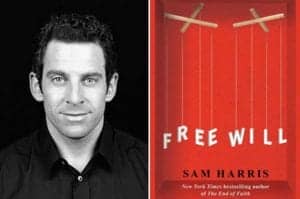
My favorite book on the topic is also one of the most hotly contested.
But it’s the examples in Free Will by Sam Harris that really bring it all together.
And although Daniel Dennet strongly disagrees with its thesis, going through the for and against will give your thinking abilities a stretch.
Without a doubt, contending with the issue of free will is one of the best ways you can practice critical thinking. It will also give you a better understanding of human consciousness too.
Nine: The Humpty Dumpty Of Thought
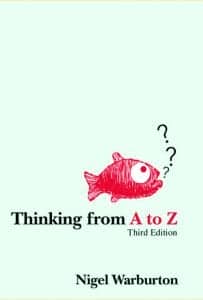
As the cohost of Philosophy Bites , a fantastic philosophy podcast, Warburton has packed this book with excellent critical thinking tools to up your game.
Some of my favorites include:
Weasel Words
“Advertisers who declare the food they are selling to be a ‘healthier alternative’ need to specify precisely what the food is healthier than and why. If they cannot do this, then the weasel words ‘healthier alternative’ are meaningless – mere rhetoric”
Humptydumptying
Giving private meanings to words in common use
‘When I use a word,’ Humpty Dumpty answers, in rather a scornful tone, ‘it means just what I choose it to mean — neither more nor less.’
Ten: The Power of Analysis

This book proves a number of self assessment activities, including several sub-skills, such as identifying similarities and differences.
It also includes material on:
- Note taking in a critical manner
- Critical writing
- Reflective thinking tips as a mental discipline
- Multiple models of reflective thinking
- Bonus practice activities
If you do any kind of reading and writing, this book is a must.
Eleven: Improve Your Research Skills
If you do anything involved in research, you know just how difficult interpreting data accurately can be.
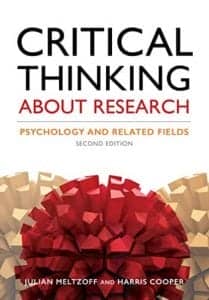
In this book, you’ll learn all about:
- How to seek trustworthy knowledge
- How to understand the role of hypothetical questions
- How samples are chosen and validated
- Aspects that threaten the validity of a research project
- The role of ethics in research
- Examples of multiple studies in different fields of interest
There are a large number of practice articles too. These will help you better engage with scientific reporting you encounter in the media.
Twelve: Avoiding Errors
If you’re like me, you probably prefer to avoid mistakes whenever possible.
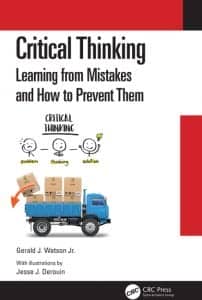
This book exposes the many poor thinking habits we have. Here are just a few the book covers and then repairs:
- Being in a hurry
- Missing a deadline
- Faulty cost analyses
- Failing to ask for help
I’ve personally found this book helpful, especially when dealing with customers and personal coaching clients. It’s great to be able to ascertain what errors people are making and help guide them to more logical conclusions.
Anyone can do this for themselves too. Read this book.
Thirteen: Know Your Science
The lack of scientific literacy in society is a huge problem.
That’s why I recommend Science, Pseudo-science, Non-sense, and Critical Thinking: Why the Differences Matter .
In this book by Marianna Barr and Gershon Ben-Shakhar, you get detailed chapters that use critical thinking to debunk:
- Cold reading
Another thing that makes this critical thinking book unique is that it includes:
- Correspondence with Houdini
- Good movie and literature examples
- Excellent lists of books to follow-up on with for further information about each pseudoscientific topic
I also like how the book discusses the reasons why people need to believe – or at least think they do.
Fourteen: An Ancient Critical Thinking Book
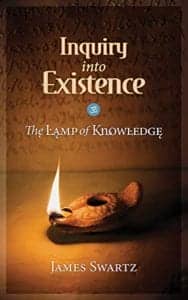
Basically, this term translates to a statement like: “the culmination of the Vedas is ‘not two’”.
In other words, the philosophy works to demonstrate a “oneness” in human consciousness.
One of the most interesting books uses critical thinking to demonstrate this principle. It is called Panchadasi .
My favorite commentary on this text, which includes a translation, is Inquiry Into Existence , by James Swartz.
This philosophy will probably stretch your mind.
The trick is not to mistake its conclusions for solipsism, which is arguably nonsense . It’s really just a way of thinking through the situation we all find ourselves in as the bearers of consciousness.
Crafting A Library Of Critical Thinking Books
I hope you enjoyed checking out this list of books on critical thinking. Please let me know which ones you check out and how you helpful you found them.
There are many more out there, and keep in mind that you can find texts that will help you improve many types of thinking .
The important thing is to have a library that you continually build and read thoroughly.
And to get it all in, I recommend that you check out how to read faster next.
Need help with remembering what you read from these books? Check out my free memory improvement course:

Related Posts
Real life critical thinking examples are hard to come by. This post gives you 7…
Critical thinking provides so many benefits. But did you know there's more than one kind…
Reading on its own is not enough. You also need critical thinking strategies. Here are…
6 Responses
Always a pleasure Anthony to read your ideas and thoughts!
Thanks so much for stopping by to give it a look, Raymond.
Anything new with your memory and learning journey lately?
Your lessons always help me. It’s really useful for every student.
Thanks so much for stopping by and letting me know!
As always, you provide great material for self-empowerment
Thanks so much for giving it a read. It is an honor and a pleasure to do this work and I appreciate your support very much!
Leave a Reply Cancel reply
Your email address will not be published. Required fields are marked *
Save my name, email, and website in this browser for the next time I comment.
I accept the Privacy Policy
WANT TO LEARN SIMPLE EVERYDAY THINGS WITHOUT FORGETTING?
Enter your email below to get instant access to my FREE course that gives you a proven step-by-step process for remembering anything you want . You'll discover how to:
- Speak any language fluently
- Recall complicated formulas, math equations, or numbers.
- Master the technical terms for your field of work or study.
- Recite poetry, jokes, and even long speeches word-for-word
- Quickly absorb the most important ideas from books, textbooks, or lectures...
Unlock your natural ability to learn and remember anything 3x faster now!
ABOUT ANTHONY METIVIER

Anthony Metivier is the founder of the Magnetic Memory Method, a systematic, 21st century approach to memorizing foreign language vocabulary, names, music, poetry and more in ways that are easy, elegant, effective and fun.
Dr. Metivier holds a Ph.D. in Humanities from York University and has been featured in Forbes, Viva Magazine, Fluent in 3 Months, Daily Stoic, Learning How to Learn and he has delivered one of the most popular TEDx Talks on memory improvement.
His most popular books include, The Victorious Mind and… Read More
Anthony Metivier taught as a professor at:
POPULAR POSTS
Recent posts, 10 intellectual activities to mix with mnemonics for personal growth, how to memorize paragraphs, sentences, and passages fast, the ultimate guide to using mnemonics in your everyday life, why can’t i retain information 13 ways to fix your memory fast, memory games: 22 diversions that give your brain a boost, pay with confidence.

P.O. Box 933 Mooloolaba, QLD 4557 Australia
MEMORY COURSES
Quick links, memory boosting tips & tutorials.
Copyright © 2012 – 2024 Anthony Metivier · Advanced Education Methodologies Pty Ltd
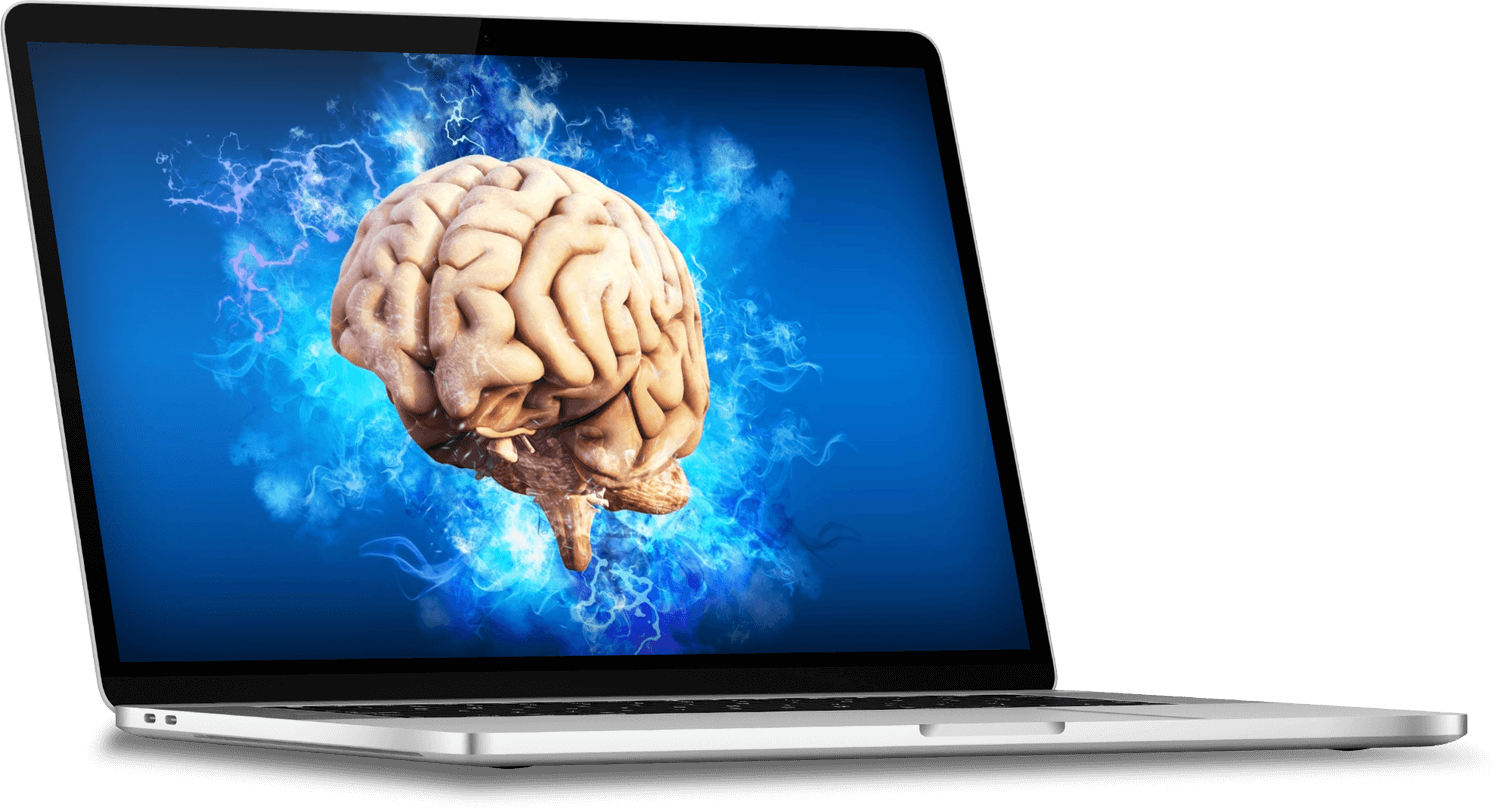
8 Best Books on Critical Thinking for a Successful Career – Tools to Transform Your Mindset
Critical thinking isn’t just a buzzword; it’s a powerful skillset that can empower you to excel in your career. By developing your critical thinking muscles, you become a more valuable employee, capable of tackling challenges with greater confidence and agility.
But how does one cultivate such skills? The answer lies in learning from experts through their insightful writings. In this article, we explore five groundbreaking books on critical thinking.
1. “Thinking, Fast and Slow” by Daniel Kahneman

Daniel Kahneman , a Nobel laureate, introduces the dual-process theory in “ Thinking, Fast and Slow ,” dividing thought processes into intuitive (System 1) and analytical (System 2) thinking.
System 1 is fast and emotional, leading to quick conclusions, while System 2 is slower, more logical, and methodical. Understanding these systems is crucial for distinguishing between situations that require quick decisions and those that benefit from a more deliberate approach.
How to Improve Decision-Making in the Workplace?
Kahneman provides practical insights into how these thought processes affect decision-making and judgment in professional settings. He illustrates how to identify and overcome cognitive biases and logical fallacies.
These insights help professionals to make more informed decisions, fostering a thoughtful and effective work environment.
2. “Factfulness” by Hans Rosling

Hans Rosling ‘s “Factfulness” champions the use of data to accurately understand the world. He argues that many people’s worldviews are based on misconceptions, advocating for a fact-based perspective.
Rosling’s emphasis on data literacy is crucial for questioning assumptions and overcoming biases, particularly relevant in today’s data-driven professional environments.
Importance of Data Literacy in Professional Decision Making
“ Factfulness ” is a guide for professionals to navigate a world inundated with data. Rosling demonstrates how accurate data interpretation leads to better business and policy decisions. This approach promotes adaptability and forward-thinking, essential traits for career advancement.
3. “The Skeptic’s Guide to the Future” by Steven Novella

Steven Novella, in “The Skeptic’s Guide to the Future,” advocates for skepticism as a tool for evaluating emerging trends and technologies. He teaches readers to balance optimism about the future with critical questioning, helping professionals avoid the pitfalls of uncritically following trends or investing in unproven technologies.
Definition of Skepticism in Strategic Planning
Novella’s approach is crucial for strategic planning and innovation. He guides professionals on how to critically assess new ideas and technologies, leading to more sustainable and successful innovations. This skepticism is key to maintaining a competitive edge in any industry.
4. “Predictably Irrational” by Dan Ariely

In “Predictably Irrational,” Dan Ariely explores how irrational behaviors often influence our decision-making. He uses experiments to show how emotions and social norms can lead to irrational choices. For professionals, understanding these patterns is vital for making more objective decisions.
Rational Decision-Making in Negotiation and Leadership
Ariely’s insights are particularly relevant for enhancing negotiation and leadership skills. By recognizing and mitigating irrational tendencies, professionals can negotiate more effectively and lead teams with a balanced, rational approach.
5. “Think Again” by Adam M. Grant

Adam M. Grant’s “Think Again” delves into the importance of rethinking and questioning one’s long-held beliefs. Grant argues that the ability to rethink and reassess information is crucial for growth and adaptability in both personal and professional life.
He encourages embracing the joy of being wrong and the necessity of questioning even the most fundamental beliefs to foster continuous learning and improvement.
Adaptability and Innovation
In a professional context, Grant’s principles are transformative. He highlights how adaptability, born out of the willingness to reconsider one’s views, is essential in today’s fast-paced business environment.
Grant demonstrates that professionals who regularly challenge their own ideas can drive innovation and stay ahead in their careers. This mindset not only leads to personal growth but also cultivates a culture of open-mindedness and progressive thinking in the workplace.
6. “Critical Thinking: Tools for Taking Charge of Your Professional and Personal Life” by Richard Paul and Linda Elder

Richard Paul and Linda Elder ‘s book provides a comprehensive guide to understanding the principles of critical thinking. The authors present critical thinking as a set of tools for taking charge of one’s professional and personal life, emphasizing the importance of questioning assumptions and evaluating evidence.
They provide a framework for identifying and challenging biases, leading to more effective decision-making.
Application in Everyday Professional Scenarios
This book is particularly useful for professionals seeking to apply critical thinking skills in everyday work scenarios. Paul and Elder offer practical strategies for enhancing critical analysis and problem-solving skills, which are essential for navigating complex workplace situations.
Readers will learn how to apply these tools in real-world contexts, leading to better judgment and more strategic thinking.
7. “The 5 Elements of Effective Thinking” by Edward B. Burger and Michael Starbird

Edward B. Burger and Michael Starbird’s “The 5 Elements of Effective Thinking” presents a novel approach to developing thinking skills. The authors break down effective thinking into five essential elements : understanding deeply, failing in order to succeed, raising questions, seeing the flow of ideas, and changing one’s perspective.
Practical Tools for Career Growth
Each element offers practical tools for career growth. The book encourages embracing failure as a learning opportunity and continuously questioning to deepen understanding.
It provides insights into how shifting perspectives can lead to innovative solutions, making it an invaluable resource for professionals who aim to enhance their cognitive abilities and advance in their careers.
8. “Superforecasting: The Art and Science of Prediction” by Philip E. Tetlock and Dan Gardner

The book begins by challenging the common perception that accurate forecasting is the domain of a few gifted individuals. Instead, Tetlock and Gardner argue that superforecasting is a skill that can be cultivated through practice and a systematic approach.
They present a fascinating study conducted by the Intelligence Advanced Research Projects Activity (IARPA), which found that some ordinary people could predict global events with astonishing accuracy.
Cultivating the Superforecaster Mindset
Superforecasting is not just about being knowledgeable; it’s about thinking critically, being open to new information, and updating beliefs as new data comes in.
The authors provide a detailed analysis of the thought processes and behaviors that distinguish superforecasters from the average person. They emphasize the importance of intellectual humility, curiosity, and the willingness to admit mistakes and learn from them.
While it can help professionals, even students may face some benefits from reading it. For example, it can help them to cope with stress . One of the most intriguing aspects of the book is its practical application.
The authors do not just describe what superforecasting is; they also offer guidance on how to develop these skills. They outline specific practices, such as breaking down complex problems into manageable parts, seeking out diverse perspectives, and balancing inside and outside views.
How can “Thinking, Fast and Slow” help in conflict resolution at work?
“Thinking, Fast and Slow” provides insights into how our quick (System 1) and slow (System 2) thinking processes can affect conflict resolution. Understanding these systems helps identify when emotional reactions (System 1) might escalate conflict and when a more analytical approach (System 2) is needed to resolve issues thoughtfully and effectively.
How can I improve my IQ and critical thinking?
Improving IQ involves engaging in activities that challenge your brain, like puzzles, learning new skills, or intellectually stimulating tasks. For critical thinking, practice analyzing situations from multiple perspectives and questioning assumptions.
Do books help with critical thinking?
Yes, reading books, especially those on subjects like logic, philosophy, and problem-solving, can significantly enhance critical thinking skills. They provide new perspectives and frameworks for analyzing information and making decisions.
Can you train critical thinking?
Absolutely, critical thinking can be trained and improved by regularly engaging in activities that require analysis, evaluation, and strategic thinking. Participating in debates, solving complex problems, and reflecting on decision-making processes are effective ways to sharpen these skills.
Remember, the key to mastering critical thinking lies not just in acquiring knowledge, but in the willingness to question, analyze, and adapt one’s thinking in an ever-evolving world.
This mindset is a powerful tool for personal and professional growth, leading to greater success and fulfillment in various aspects of life.
Related Posts:
- If You Want to Make God Laugh, Tell Him About Your Plans
- The 4 Quadrants of Time Management - How to Organize…

- Search Search Search …
- Search Search …
What are the Top 20 Best Critical Thinking Books?

There are many great books on critical thinking, including but not limited to Thinknetic’s “The Habit of Critical Thinking,” Rebecca Stobaugh’s “50 Strategies to Boost Cognitive Engagement,” and Jonathan Haber’s “Critical Thinking: Part of the MIT Press Essential Knowledge.”
With all the books on critical thinking available, how do you best determine which you should read? The rest of this article will break down the top 20 books on critical thinking followed by the Amazon link and a short description of each.
What is Critical Thinking?
Critical thinking is the ability to objectively analyze and evaluate an issue in order to form judgment, which is vital in today’s world. While critical thinking begins in early childhood and is taught at the primary and secondary education levels, it is always best to keep your critical thinking skills sharp.
Why is Critical Thinking Important?
Communication is key to healthy relationships and communities. Critical thinking enables individuals to express their thoughts, ideas, and beliefs in constructive ways. In relationships, critical thinking is vital to avoid frustration and miscommunication.
Critical thinking fosters creativity and out of the box thinking, which can be applied to any area of life. People are usually introduced to critical thinking in early childhood when, as infants and toddlers, we explore our world and its limits. Our first problem solving skills come in our earliest years.
However, critical thinking doesn’t always come so naturally. Fortunately, there are countless resources to improving our critical thinking skills – including the following books mentioned in this article.
The Top 20 Books on Critical Thinking
The following books can all be found on Amazon.com, and a link is provided for each.
1.) Critical Thinking ; Logic Mastery (Series by Thinknetic)
The first entry on our list is actually a series of 5 books by Thinknetic.net . Each of the five books contain essential critical thinking skills and teach the reader how to change their way of thinking and apply critical thinking to every aspect of their lives. The five books in the series are as follows:
- Critical Thinking in a Nutshell
- The Critical Thinking Effect
- Conquer Logical Fallacies
- The Habit of Critical Thinking
- The Socratic Way of Questioning
Most of these books are available on Kindle Unlimited. You can purchase them individually or as a set.
Amazon Link: https://amzn.to/360UA40
2.) Critical Thinking and the Analytical Mind by Marcus P. Dawson

Amazon Link: https://amzn.to/3LUuqyS
This book teaches the reader the art of making decisions and solving problems while thinking clearly and avoiding cognitive biases and fallacies in systems.
3.) Critical Thinking: The 12 Rules for Intelligent Thinking by Jason Dyer

Amazon Link: https://amzn.to/3jDVk2h
The description of this book includes skills to improve your problem solving and decision-making skills. It also contains valuable information on how to overcome shyness and social anxiety – conditions that hinder many people in both personal and professional capacities – and increase self-confidence.
4.) 50 Strategies to Boost Cognitive Engagement by Rebecca Stobaugh

Amazon Link: https://amzn.to/3OaDYbl
This valuable book for teachers of any grade level – from elementary to college – helps build a culture of thinking that transforms any classroom into an environment of active learning and student engagement.
5.) Critical Thinking: The MIT Press Essential Knowledge Series by Jonathan Haber

Amazon Link: https://amzn.to/3ji6329
In this essential book, Jonathan Haber explains critical thinking, how the term first emerged in society, its definition, and how to teach and assess critical thinking skills.
6.) The Critical Thinking Toolkit by Galen A. Foresman, Peter S. Fosl, and Jamie C. Watson

Amazon Link: https://amzn.to/3vcISMi
This comprehensive book takes a wide view with critical thinking perspectives in psychology, sociology, philosophy, and political science. It applies critical thinking to subjects such as race and gender, symbols in rhetoric, and cognitive biases.
7.) Critical Thinking: A Beginner’s Guide to Developing Reasoning Skills by Morris Cullen

Amazon Link: https://amzn.to/3DX6t7w
A great resource for those still unfamiliar with the concept of critical thinking, this book will help the reader conquer feeble thought patterns and utilize reason.
8.) Critical Thinking Beginner’s Guide: Learn How Reasoning by Logic Improves Effective Problem Solving by Carl Patterson

Amazon Link: https://amzn.to/3rAJevd
This book contains the tools to think smarter and level up intuition to reach your potential and grow your mindfulness.
9.) Thinking Guide for Busy People by Harvey Smart

Amazon Link: https://amzn.to/3JsjzdU
This book helps the reader avoid the most common but subtle decision-making mistakes and make better decisions.
10.) Thinking, Fast and Slow by Daniel Kahneman

This New York Times Bestseller won the Nobel Prize in Economics.
Amazon Link: https://amzn.to/3Ob1RQ3
11.) Overthinking is NOT the Solution by Robert J. Charles
This book lists 25 ways to reduce stress, eliminate negative thinking, develop mental clarity and master your emotions.

Amazon Link: https://amzn.to/3LOsKHm
12.) Communication Skills Training by Ian Tuhovsky

This practical guide outlines how to improve social intelligence, presentation, persuasion, and public speaking. An Amazon bestseller.
Amazon Link: https://amzn.to/3LQu64d
13.) Self-Discipline: How to Build Mental Toughness and Focus to Achieve your Goals by John Winters

Amazon Link: https://amzn.to/3NSLIhX
A great book for those who don’t feel in control of their lives and want to change their path.
14.) Critical Thinking Mastery by Carl Patterson

Amazon Link: https://amzn.to/3xnnBlo
A beginner’s guide to increase intuition, improve communication, and solve problems.
15.) Master Your Emotions by Thibaut Meurisse
This book is described as a practical guide to overcoming negativity and better managing your emotions.

Amazon Link: https://amzn.to/3DX424Q
16.) Rethinking How We Think by Charles M. Johnston, MD

Amazon Link: https://amzn.to/3LQvfZz
This book details the integrative meta-perspective and the cognitive growing up on which our future depends.
17.) Critical Thinking by Brooke Noel Moore and Richard Parker

Amazon Link: https://amzn.to/36ZTy8Y
This textbook helps build the ability to discern between subjective opinions and judgments and objective facts in the era of “fake news.”
18.) Critical Thinking in Psychology, edited by Robert J. Sternberg

Amazon Link : https://amzn.to/3upkK9R
This textbook is a guide for psychology students to think critically about key topics such as experimental research, statistical analysis, and ethical judgments.
19.) Thinking in Systems and Mental Models by Marcus P. Dawson

Amazon Link: https://amzn.to/3Kv2JMQ
A guide for decision making and problem solving, this book introduces chaos theory and the science of thinking for social change.
20.) Critical Thinking by Tom Chatfield

Amazon Link: https://amzn.to/3v4GIOr
This valuable resource serves as a guide for effective argument, successful analysis, and independent study.
You may also like

How to Evaluate Sources Using Critical Thinking: A Concise Guide to Informed Research
In today’s world, the internet provides us with a wealth of information, but not all of it is trustworthy. Knowing how to […]
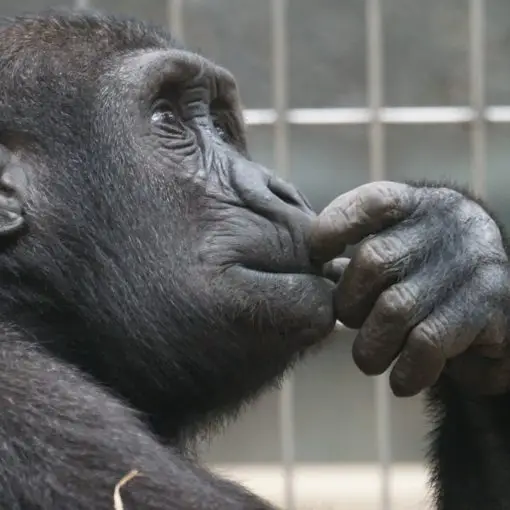
Critical Thinking and Logic – A Brief Walkthrough
Shelter, food, clothing, and water – these are usually considered as the most important necessities to live decently and sufficiently. In order […]

Hanlon’s Razor: Understanding the Principle’s Significance in Decision-Making
Hanlon’s Razor is a philosophical principle that states, “Never attribute to malice that which is adequately explained by stupidity.” It emphasizes the […]
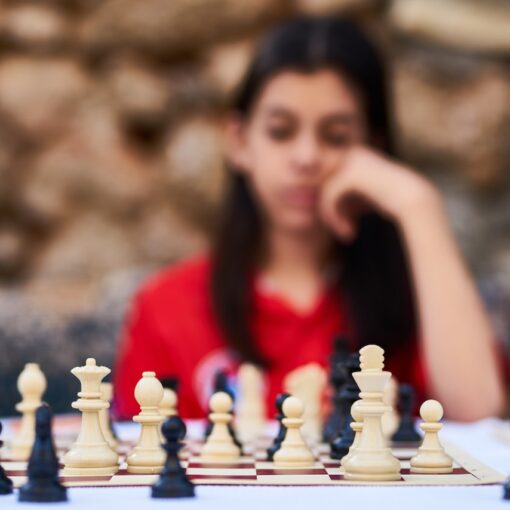

Critical thinking and Decision making
Have you ever wondered about critical thinking and decision making, and how these two concepts link to represent a common process of […]
Best Books Hub
Reviews of The Best Books on Every Subject
20 Best Books on Critical Thinking (2022 Review)
September 16, 2020 by James Wilson
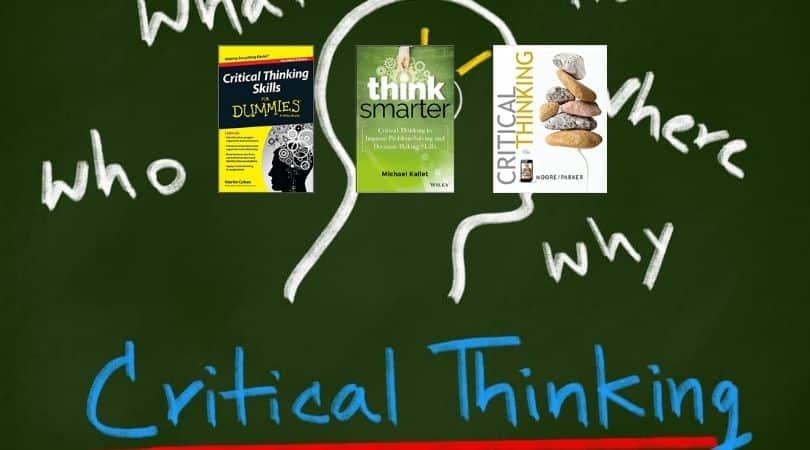
DISCLOSURE: This post may contain affiliate links, meaning when you click the links and make a purchase, I receive a commission. As an Amazon Associate I earn from qualifying purchases.
Critical thinking is a skill/mindset that enables a person to think logically. Critical thinking is a vital necessity for everyone these days who want to perform exceptionally. No matter what field of life you are in, let it be a student, a teacher, an athlete or a corporate employee. There are high chances that you will need to enable critical thinking to find a noteworthy solution to your problems and be able to move forward effectively.
To enable critical thinking, there are certain things involved. These include evaluating evidence, weighing the chances, analysing assumptions and more. Once you start your journey towards critical thinking, you start to take the next steps automatically. It is a journey that takes you from assumptions to the realities that are possible.
What are the Best Critical Thinking Books to read?

With effective critical thinking skills, it is impossible for you to be fooled by anyone. You can read one’s intentions right away. You can even see what other people cannot, based on evidence and argument.
If you are looking to grow respective critical thinking skills, and want to learn it quick. We have compiled a list of books that you can read the review for. This will enable you to choose the right book on critical thinking for your learning journey.
Best Books on Critical Thinking: Our Top 20 Picks
Here are some of the best critical thinking books that you can consider to expand your knowledge on the subject:
1. Critical Thinking Skills for Dummies
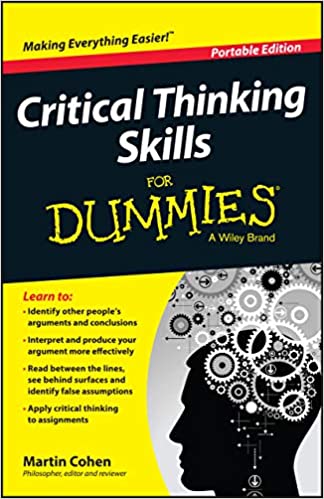
Of Course, we all are already aware of the “For Dummies” series. For those who are not, this series presents an absolute and definitive guide for the beginners. With the help of this series, everyone can effectively learn the skills from the beginner level to advance. If you have little to zero knowledge about critical thinking and want to learn, this is the book for you.
The book has been written by Martin Cohen. It serves the purpose by enabling its readers to get access to the most comprehensible and easy-to-read narrative on critical thinking. The book provides you with access to several tools that you can activate to develop reflective thinking. There is also deep insight from the beginners’ level on how you can brainstorm to generate insights.
- Authors : Martin Cohen (Author)
- Publisher : For Dummies; 1st Edition (May 4, 2015)
- Pages : 376 pages
2. Think Smarter: Critical thinking to improve problem-solving and decision-making skills
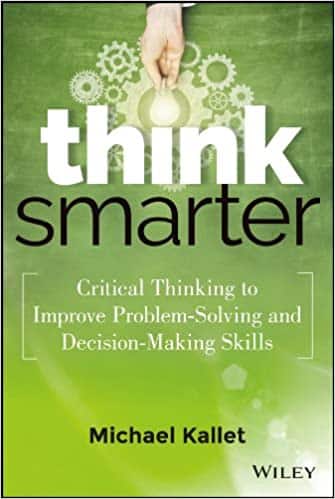
Critical thinking is a necessary skill for all that are studying, teaching, or working in any part of life. It enables you to look at the flaws in a system, a story, a program, a project or virtually anything so you can effectively improve it.
This book is all about using critical thinking to improve problem-solving and decision-making skills. Written by Michael Kallet, the book presents valuable arguments that you can use to weigh your options, find the flaws and improve your critical thinking skills. This book goes beyond the concepts and is about the examples of real-world scenarios that will not only serve as a clear piece of understanding for you but also help you with the exercise and practice of such skills. The book has over 25 tools for critical thinking with real-world examples.
- Authors : Michael Kallet (Author)
- Publisher : Wiley; 1st Edition (April 7, 2014)
- Pages : 240 pages
3. Critical Thinking (10th Edition)

There are levels of Critical thinking classified with the understanding and utilization level of the students. The course enables students to think logically and critically not only in the class but in the real-world to make effective decisions.
It will not be wrong to call this book the most taught textbook on critical thinking subjects. The book is written by Brooke Noel Moore and Richard Parker. It presents the students with a buffet of examples and exercises that they can perform within or outside the class to enable their critical thinking skills and do well in their life. The book presents a highly understandable version of critical thinking in Moore’s famous, engaging narrative.
- Authors : Brooke Noel Moore (Author), Richard Parker (Author)
- Publisher : McGraw-Hill; 10th Edition (January 1, 2012)
- Pages : 576 pages
4. Critical Thinking: Tools for taking charge of your learning and your life (3rd Edition)
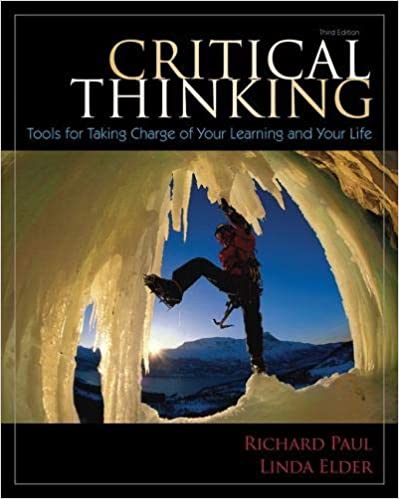
Critical thinking has become highly popular in the last couple of decades. It enables you with an approach of integration and making decisions based on viable arguments and evidence instead of hallow words. The sixth sense is a thing, but weighing your arguments and the right evidence laying in front of you is what critical thinking enables you to do.
Written by two experts of the field Richard Paul, and Linda Elder, this book presents its readers with a huge list of interactive tools that they can learn to utilize in their learning journey towards critical thinking. This book is focused on a comprehensive and practical approach to critical thinking that is to be used in everyday life. With this book, you can get your hands on some new diagrams that will enhance your decision-making skills.
- Authors : Richard Paul (Author), Linda Elder (Author)
- Publisher : Pearson; 3rd Edition (November 20, 2019)
- Pages : 528 pages
5. The power of Critical Thinking: Effective Reasoning about Ordinary and Extraordinary claims
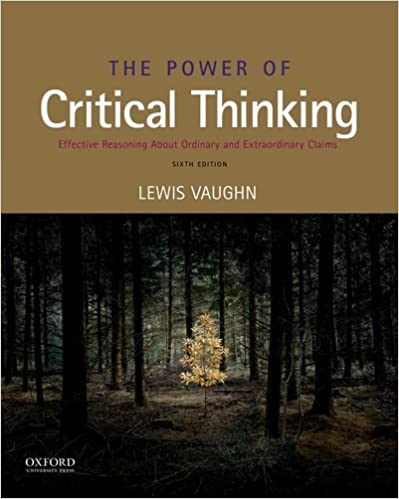
Critical thinking is a power that takes you from assuming to believing. It enables you to understand the truth laying behind the valid evidences that someone is trying to hide it from you. It is a skill to believe in the true version of events instead of hallow words.
Written by Lewis Vaughn, this book is the right read for you if you are looking to enable and use critical thinking in your daily routine. The book enables you access to a wide range of tools you need to apply for critical thinking in daily life. It provides a perspective understandable and applicable by students, teachers, corporate workers, and normal people alike. Including scientific reasoning, evidence, authority, and visual reasoning this book can enable you to get the skills of critical thinking in a commendable manner.
- Authors : Lewis Vaughn (Author)
- Publisher : Oxford University Press; 6th Edition (September 20, 2018)
- Pages : 600 pages
6. Critical Thinking, Reading and Writing: A Brief Guide to Argument (9th Edition)
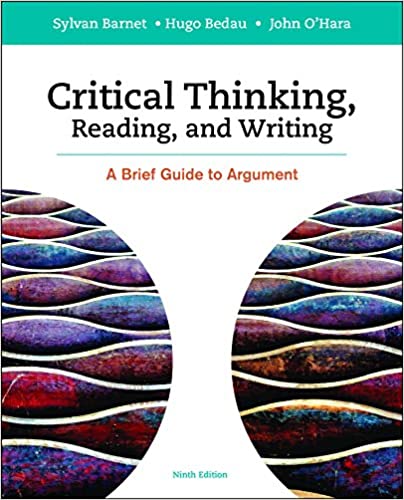
If you are a reader, student or an individual with a job requirement of reading and getting the right information. This book is the right guide for you. This book is a comprehensive, compact guide for all those who want to learn the right skillset to weigh arguments based on validity and authority.
The book presents you with a number of real-life examples that will enable you to understand the fundamentals of skimming through the information and improve your analysis to reach the right conclusion. Written by Sylvan Barnet, Hugo Bedau, and John O’Hara this book has all the information and guidance to enable critical thinking and create valid arguments based on facts and figures.
- Authors : Sylvan Barnet (Author), Hugo Bedau (Author), John O’Hara (Author)
- Publisher : Bedford/St. Martin’s; Ninth Edition (October 4, 2016)
7. Critical Thinking (11th Edition)
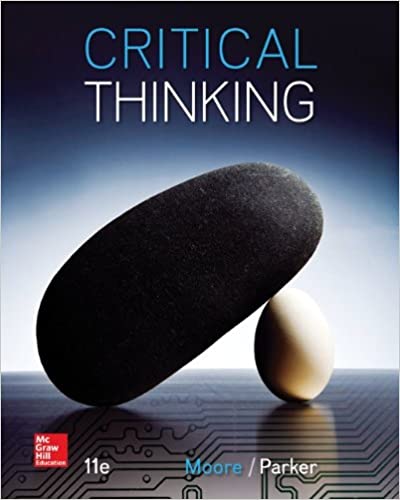
Critical thinking is being taught as a course in most schools. It enables the students to make the right decisions in life effectively and to weigh the chances for their success. Critical thinking is a necessary tool for all who want to survive in this highly competitive world and outperform their selves every day.
It will not be wrong to call this book a Textbook. Written by Brooke Noel Moore, and Richard Parker this book contains a unique and interactive approach towards learning the skills required to enable critical thinking. There are real-world applications that enable the students and instructors alike to understand the concepts better. The book is a great help for not only scoring grades in the course but also being able to use the concepts and learnings effectively in daily routine.
- Publisher : McGraw-Hill Education; 11th Edition (January 15, 2014)
- Pages : 512 pages
8. Models for Critical Thinking: A fundamental guide to effective decision making, deep analysis, Intelligent reasoning, and independent thinking
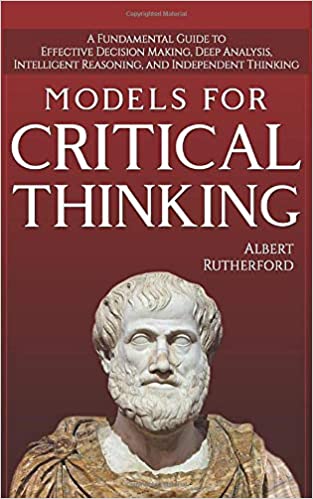
Critical thinking has benefits far more reasonable and useful beyond the academic career. While there are no doubts about the importance of critical thinking for educational purposes. There are also a number of other applications that you can use critical thinking to analyse and understand the process of certain things going around.
Written by Albert Rutherford, this book is a marvel of critical thinking. With this book, you can get your hands on some advance concepts and techniques used to enable critical thinking. And the best part is, there are also numerous applications including that will enable you to enhance your critical thinking skills. The book contains elaborative insight on how you can apply logic to analyse and everyday events around you and use that to save yourself from getting tricked or manipulated.
- Authors : Albert Rutherford (Author)
- Publisher : Independently published (October 17, 2018)
- Pages : 278 pages
9. LOGITICA: Improve your critical thinking and problem-solving skills: the brain behind the brain
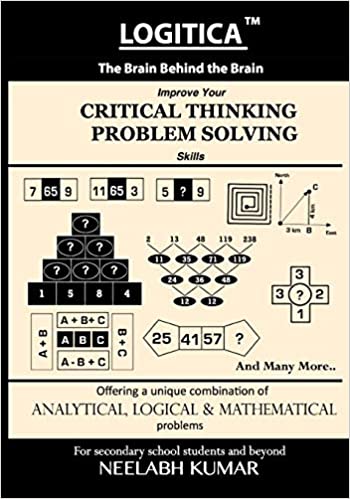
Problem-solving skills rely greatly on critical thinking. To understand an error in your work and to effectively eliminate that requires a deeper sense of understanding towards the comprehension of the reasons that may have caused the error and how you can improve.
This book is based on logistical facts and figures rather than assumptions, that could have been true. Logics presents you with a more accurate opportunity and approach towards improving our problem-solving skills. Written by Neelabh Kumar, this book is a right guide for all those who want to understand an in-depth perspective of what may have caused an error and how you can eliminate the possibility of recurrence through enhances critical thinking skills.
- Authors : Neelabh Kumar (Author)
- Publisher : Independently published (January 8, 2019)
- Pages : 329 pages
10. A workbook for arguments, Second Edition: A complete course in critical thinking
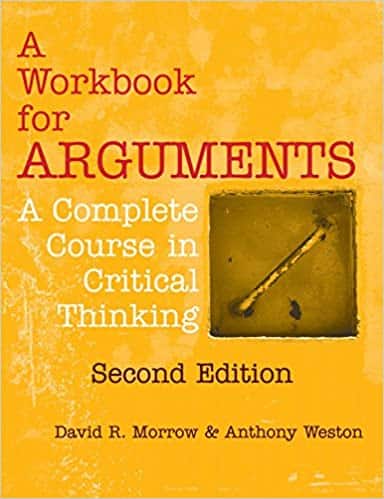
This second edition of a highly popular guide on critical thinking contains all major improvements that back the fundamentals of the first edition. However, advancement and revelations are continued and this book is the right example of moving forward in your journey of learning critical thinking efficiently.
The book is written by David R. Morrow and Anthony Weston. In this book, they present an understandable and easy to imply narrative towards critical thinking. The book contains elaborative information on all the exercises of critical thinking. Also, it has improved and enhanced version of scientific reasoning that was discussed in earlier edition. This is a perfect workbook for all the students and those who are looking to improve their critical thinking skills.
- Authors : David R. Morrow (Author), Anthony Weston (Author)
- Publisher : Hackett Publishing Company, Inc.; Second Edition (November 1, 2015)
11. From Critical Thinking to Argument: A Portable Guide (5th Edition)
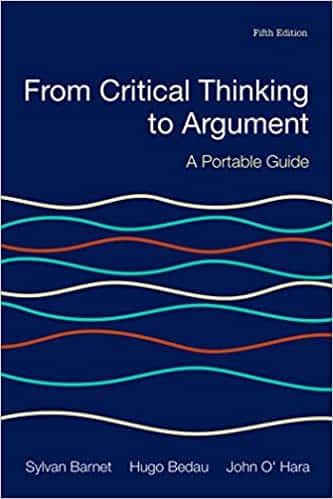
Critical Thinking is a valuable skill for all, especially the writers. While other people have to self-analyse and use the information for their own improvements and apply them their selves. Writers are required to craft the arguments based on the information and their critical thinking skills.
This book is written by Sylvan Barnet, Hugo Bedau, and John O’Hara. It is a handbook that is compact and has a precise narrative to not only enhance critical thinking skills but also to improve the knowledge. The book contains practical exercises on how one can effectively craft the arguments based on facts, figures, and assumptions that might come true.
- Publisher : Bedford/St. Martin’s; Fifth Edition (December 22, 2016)
- Pages : 432 pages
12. Critical Thinking: The effective Beginner’s guide to master logical facilities using a scientific approach and improve your rational thinking skills with problem-solving tools to make better decisions
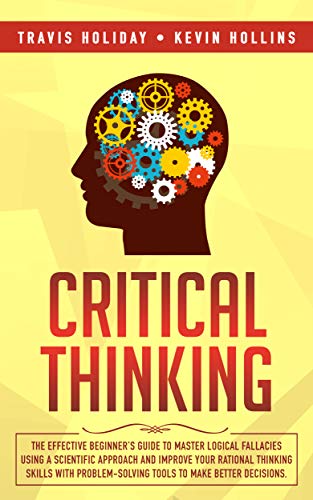
Thinking deep and analytically requires you to work on your thinking process and analyse the information effectively. These are some skills that require you to work on yourself and the way you look at things. It includes changing your narrative towards the things that might be causing hindrance in your thinking process and clouding your judgment.
The book is written & published by Travis Holiday, and Kevin Hollins. This is the right guide for all the beginners to start thinking rationally and based on the facts that are affecting things around you. There are indicators that allow you to see the reality hidden behind things and words with absolute meaning. However, there are deeper practices along the way and you must understand those to start thinking effectively the right possible way. This book is the right guide that will take you from beginner to master-level critical thinking approach through its easy to understand and imply a narrative.
- Authors : Travis Holiday (Author), Kevin Hollins (Author)
- Publisher : Independently published (September 18, 2019)
- Pages : 210 pages
13. Critical Thinking (12th Edition)
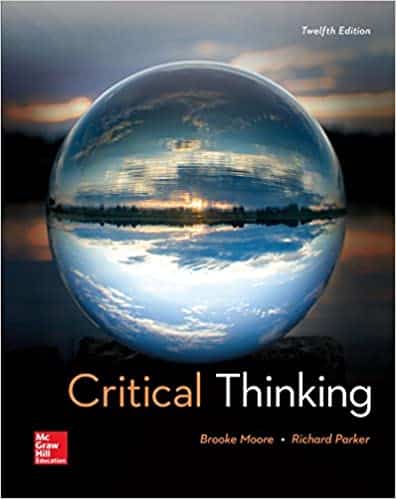
Researches are being conducted daily on critical thinking. With each passing day, there are new and more effective concepts that are being discovered and proven right. These concepts are not a denial to older ones but strengthen their validity. If you are looking to get your hands on some of the latest concepts of Critical thinking, this is the right book for you.
Written by Brooke Noel Moore and Richard Parker, this book presents you with the most up-to-date concepts of critical thinking. It has an improved narrative and hundreds of latest examples based on real-world scenarios that will enable you to think critically and improve your decision-making skills in every part of your life.
- Publisher : McGraw-Hill Higher Education; 12th Edition (October 25, 2016)
14. The basics of Critical Thinking
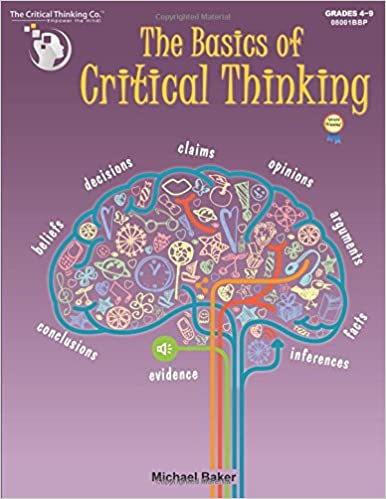
Young minds are more interesting and they are more curious. Curiosity is considered the first step toward critical thinking. It is believed that habits made in early age stays with you for life. Critical thinking is more of a habit, a lifestyle than a skill set that you can earn over time. Hence, this book presents a version of basic tools that can enable younger minds to get hold of the basics of critical thinking.
The book follows simple English with a narrative that is easier to understand for children. To increase interest, this book contains a colourful and image-based description of things. The book is written by Michael Baker. While it is intended for younger people, that does not mean adults cannot read it. For all those who want to learn the fundamentals of critical thinking and to enable their selves to analyse things effectively, this book is a worthy read.
- Authors : Michael Baker (Author), Children’s Books – Educational (Introduction)
- Publisher : The Critical Thinking Co. (January 1, 2015)
- Pages : 152 pages
15. Tools of Critical Thinking: Meta thoughts of psychology, second edition.
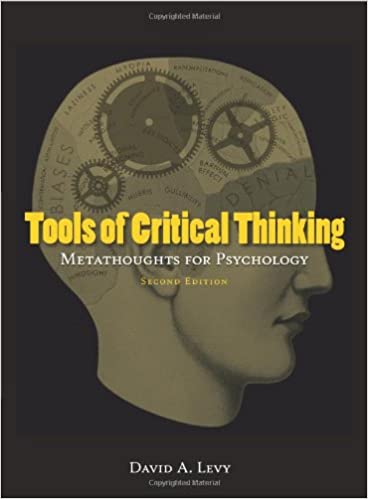
While there are other books that focus on basics and how you can start analysing things and events to think critically. This book is focused more on in-depth analysis and understanding of psychology involved behind decision making and critical thinking approach.
Written by David A. Levy, this book presents a highly understandable narrative and approach towards thinking critically and to understand how human psychology works towards it. If you are having problems in thinking critically due to the emotions attached and are unable to get ahead of these. This book is the perfect guide for you.
- Authors : David A. Levy (Author)
- Publisher : Waveland Pr Inc; 2nd Edition (September 1, 2009)
- Pages : 298 pages
16. Your Deceptive Mind: A Scientific guide to critical thinking skills
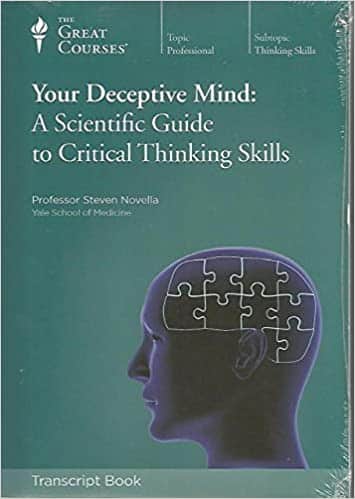
Our minds can often deceive us to think differently, while the truth is looking right in your eyes. Being said that, human judgment and decision making can often be clouded by certain feelings that are attached to it. There is no denial to it that sometimes we are unable to look at the reality because of our emotions and feelings.
This book is the right guide for all those who think that they are lacking in any field of life due to their emotions and being unable to think critically on the subject. The book presents you with a blunt and harsh narrative to stop relying on emotions and scientifically understand the factors that are stopping you from thinking critically and efficiently. It is written by Steven Novella and published by The Great Courses. The book also includes a critical toolbox that you can use to access the quality of information and skillset required to think critically.
- Authors : Professor Steven Novella (Author), Yale School of Medicine (Foreword)
- Publisher : The Great Courses (January 1, 2012)
17. Master Critical Thinking: Think Intelligently, Improve Problem-Solving Skills, make better Decisions, and Upgrade your life.
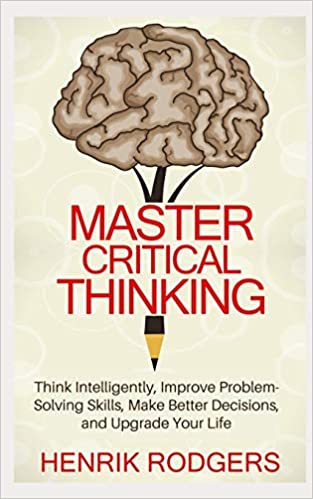
To master critical thinking, one must have several goals. The goals can be thinking intelligently and enable enhanced thinking, improving your problem-solving skills or simply making better decisions in everyday life.
Whatever your goals may be, critical thinking is the right approach towards upgrading your life with the help of improving each decision and backing it based on solid arguments instead of vague assumptions and emotions attached to it that can be deceiving at times. If you often struggle with the urge to make the right decision and want to get over with the gut feelings you have. This book will guide you to start thinking critically instead of simply relying on emotions and assumptions.
- Authors : Henrik Rodgers (Author)
- Publisher : Independently published (July 9, 2019)
- Pages : 116 pages
18. Critical Thinking: The Beginners User manual to Improve your communication and self-confidence skills Every day. The Tools and the concepts for problem-solving and decision making.
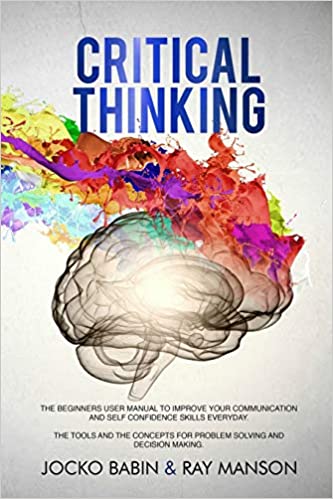
To learn from your own failures is the right way to understand and not make those mistakes again. It is the best practice to improve your own-self. However, to improve and to correct your own mistakes, the right approach is to realise them. While there are people, who can turn a blind eye towards their own mistakes. This book is the right guide that teaches you how not to. The book contains great insight into self-realization and how you can use it to improve your own thinking skills.
The book is written by Jacko Babin and Ray Manson. It contains elaborative insight on how you can effectively stop second-guessing yourself and have a confident approach towards improving the mistakes. Once you have realized your own mistakes, the rest of the journey becomes easier for you. The book also contains numerous real-life examples that will help you understand these concepts in a much better way.
- Authors : Jocko Babin (Author), Ray Manson (Author)
- Publisher : Independently published (March 9, 2019)
- Pages : 147 pages
19. A concise guide to critical thinking (1st Edition)
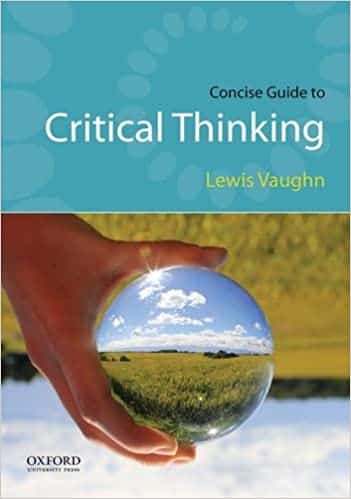
Lewis Vaughn is considered an expert on the subject of critical thinking. He has written several books covering the topic. His books contain an in-depth analysis of how you can enable critical thinking in your daily routine and what might be stopping you from doing so.
This book, however, can be deemed as a complete summary of concepts being advocated by him. Along with the guidance on covering the obstacles that are stopping you and enabling your mind to think critically. This book contains a highly understandable and easy to follow the narrative that will be great for all the beginners to understand and imply critical thinking from scratch to master level.
- Publisher : Oxford University Press; Annotated – Illustrated Edition (October 1, 2017)
- Pages : 352 pages
20. The miniature guide to critical thinking concepts and tools (Thinker’s guide library)
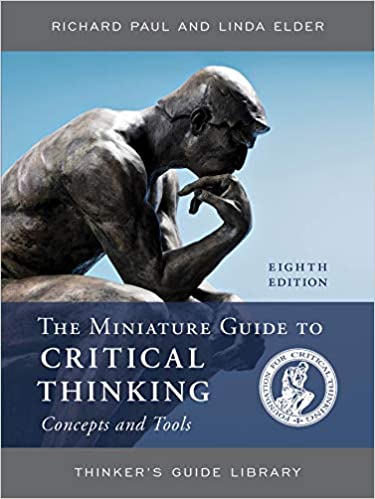
If you are looking to master critical thinking and do not have time to read extensive concepts and get yourself indulged with the psychic or scientific approach. This is the book for you. This book presents a concise and to-the-point approach to critical thinking concepts and tools.
Written by Richard Paul and Linda Elder, the book does not only contain all the information required to understand the concepts on critical thinking but also how you can imply those in your daily life to enhance your decision making and critical thinking skills effectively. The book presents a short and easy to follow approach towards the subject.
- Publisher : The Foundation for Critical Thinking; Eighth Edition (September 20, 2019)
- Pages : 48 pages
Choosing the Best Critical Thinking Books
Critical thinking is not just a skill-set. It is a way of life that enables you to make the right decisions in every part of life. It also enables you to understand the things, events and the factors involved behind them efficiently. With the help of critical thinking, you can analyse the events and decisions unbiased by any sort of feelings or attachments.
We have gone through these books and compiled a list of critical reviews on these books. If you are looking to start thinking critically and are unsure of where to start. This guide will definitely help you to choose the right book to aid your learning journey.
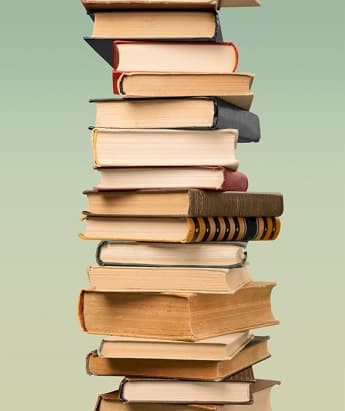
Subscribe To Email List
FREE Great Book Recommendations
Don't Miss Out On Books You Must Read
We won't send you spam. Unsubscribe at any time
7 Best Critical Thinking Books of All Time
Our goal : Find the best Critical Thinking books according to the internet (not just one random person's opinion).
- Type "best critical thinking books" into our search engine and study the top 4+ pages.
- Add only the books mentioned 2+ times.
- Rank the results neatly for you here! 😊 (It was a lot of work. But hey! That's why we're here, right?)
(Updated 2024)
As an Amazon Associate, we earn money from purchases made through links in this page.
Last Updated: Monday 1 Jan, 2024
- Best Critical Thinking Books

Thinking, Fast and Slow
Daniel Kahneman

Predictably Irrational
The hidden forces that shape our decisions.

The Demon-Haunted World
Science as a candle in the dark.

The Art of Thinking Clearly
Rolf Dobelli

Factfulness
Ten reasons we're wrong about the world - and why things are better than you think.
Hans Rosling

How to Think About Weird Things
Critical thinking for a new age.
Theodore Schick

Asking the Right Questions
A guide to critical thinking.
M. Neil Browne
- The 5 Best Books On Critical Thinking | Game-Changer www.game-changer.net
- The 17 Best Books on Critical Thinking (to Read in 2023) upjourney.com
- The 5 Best Books on Critical Thinking for Einstein-Esque Performance bloomsoup.com
- Best Critical Thinking Books theartofliving.com
What To Read Next

Explore other lists
Share this page
Email us if you have any feedback
Along with Stanford news and stories, show me:
- Student information
- Faculty/Staff information
We want to provide announcements, events, leadership messages and resources that are relevant to you. Your selection is stored in a browser cookie which you can remove at any time using “Clear all personalization” below.
Global history is not just significant events on a timeline, it is also the ordinary, mundane moments that people experience in between. Graphic novels can capture this multidimensionality in ways that are difficult, and sometimes impossible, in more traditional media formats, says Stanford history professor Tom Mullaney .
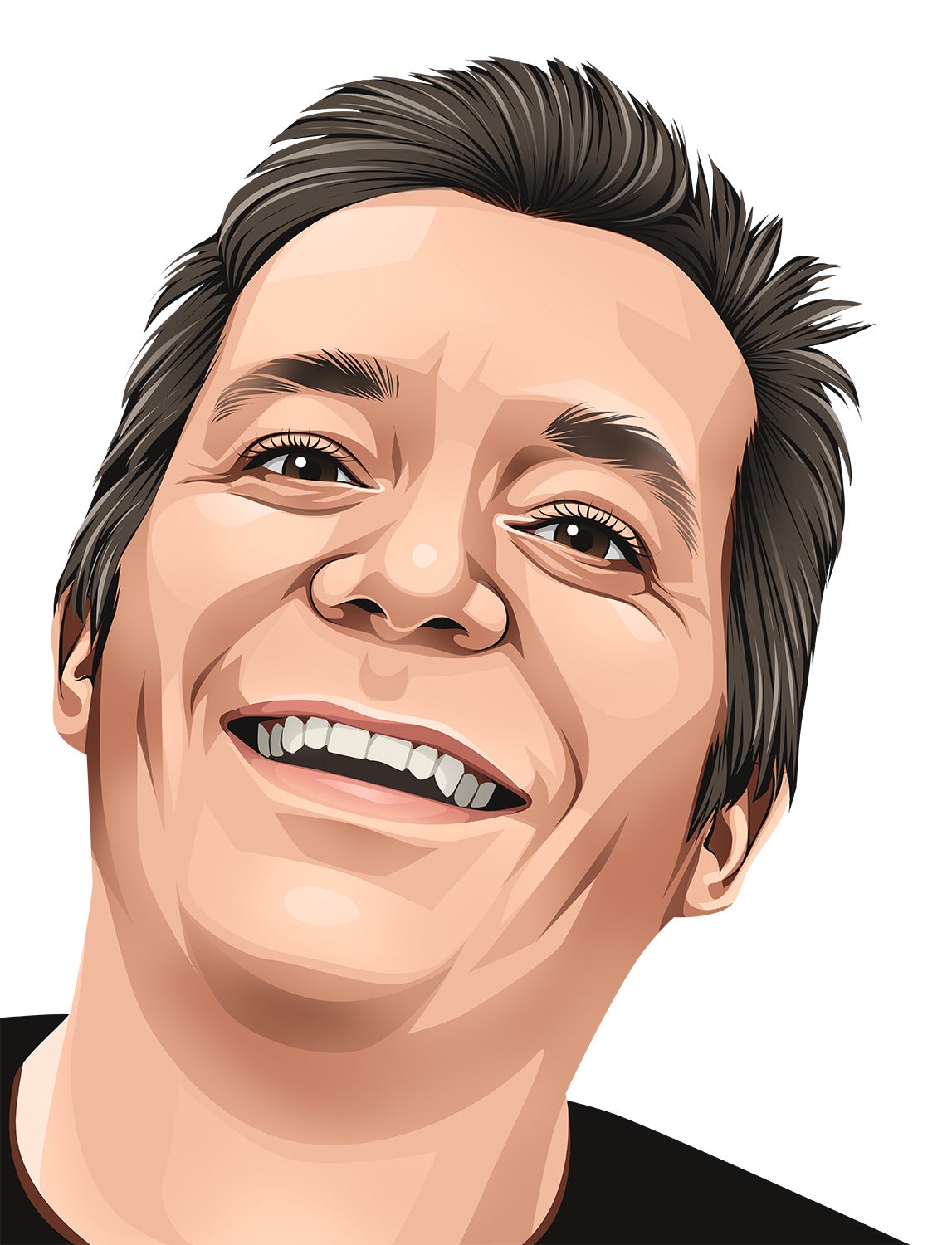
Tom Mullaney, a professor of history in the School of Humanities and Sciences, uses graphic novels in his teachings to help students appreciate different experiences and perspectives throughout history. (Image credit: Ilmiyah Achmad)
Mullaney has incorporated graphic novels in some of his Stanford courses since 2017; in 2020, he taught a course dedicated to the study of world history through comic strip formats.
While graphic novels are not a substitute for academic literature, he said he finds them a useful teaching and research tool. They not only portray the impact of historic events on everyday lives, but because they can be read in one or two sittings, they get to it at a much faster rate than say a 10,000 word essay or autobiography could.
“It accelerates the process of getting to subtlety,” said Mullaney, a professor of history at Stanford’s School of Humanities and Sciences . “There’s just so much you can do, and so many questions you can ask, and so many perspective shifts you can carry out – like that! You can just do it – you show them something, they read it and BOOM! It’s like an accelerant. It’s awesome.”
For example, in Thi Bui’s graphic novel The Best We Could Do , themes of displacement and diaspora emerge as she talks about her family’s escape from war-torn Vietnam to the United States. The illustrated memoir shows Bui’s upbringing in suburban California and the complicated memories her parents carry with them as they move about their new life in America. In other chapters, she depicts her mother and father back in Vietnam and what their own childhood was like amidst the country’s upheaval.
Graphic novels like The Best We Could Do and also Maus , Art Spiegelman’s seminal portrayal of his Jewish family’s experience during the Holocaust, illustrate the challenges and subtleties of memory – particularly family memory – and the entanglements that arise when narrating history, Mullaney said.
Graphic novels prime readers for the complexity of doing and reading historical research and how there is no simplistic, narrative arc of history. “When I read a graphic novel, I feel prepared to ask questions that allow me to go into the harder core, peer-reviewed material,” Mullaney said.
The everyday moments that graphic novels are exceptionally good at capturing also raise questions in the reader’s mind, Mullaney said. Readers sit in the family living room and at the kitchen table with Spiegelman and Bui and follow along as their characters try to understand what their parent’s generation went through and discover it’s not always easy to grasp. “Not everything mom and dad say makes sense,” said Mullaney.
These seemingly mundane moments also present powerful opportunities for inquiry. “The ordinary is where the explanation lives and where you can start asking questions,” Mullaney added.
Graphic novels can also depict how in periods of war and conflict, violence can become part of everyday existence and survival. The simplicity of the format allows heavy, painful experiences to emerge from a panel untethered and unweighted from lengthy descriptions or dramatizations.
“They’re banal. They’re not dramatic. There are no strings attached. In a work of nonfiction, in an article or book, it would be almost impossible to do that. There would have to be so much expository writing and so much description that you would lose the horror of it,” Mullaney said.
A ‘fundamental misunderstanding’
Graphic novels like Maus and The Best We Could Do were included in Mullaney’s 2020 Stanford class, Global History Through Graphic Novels .
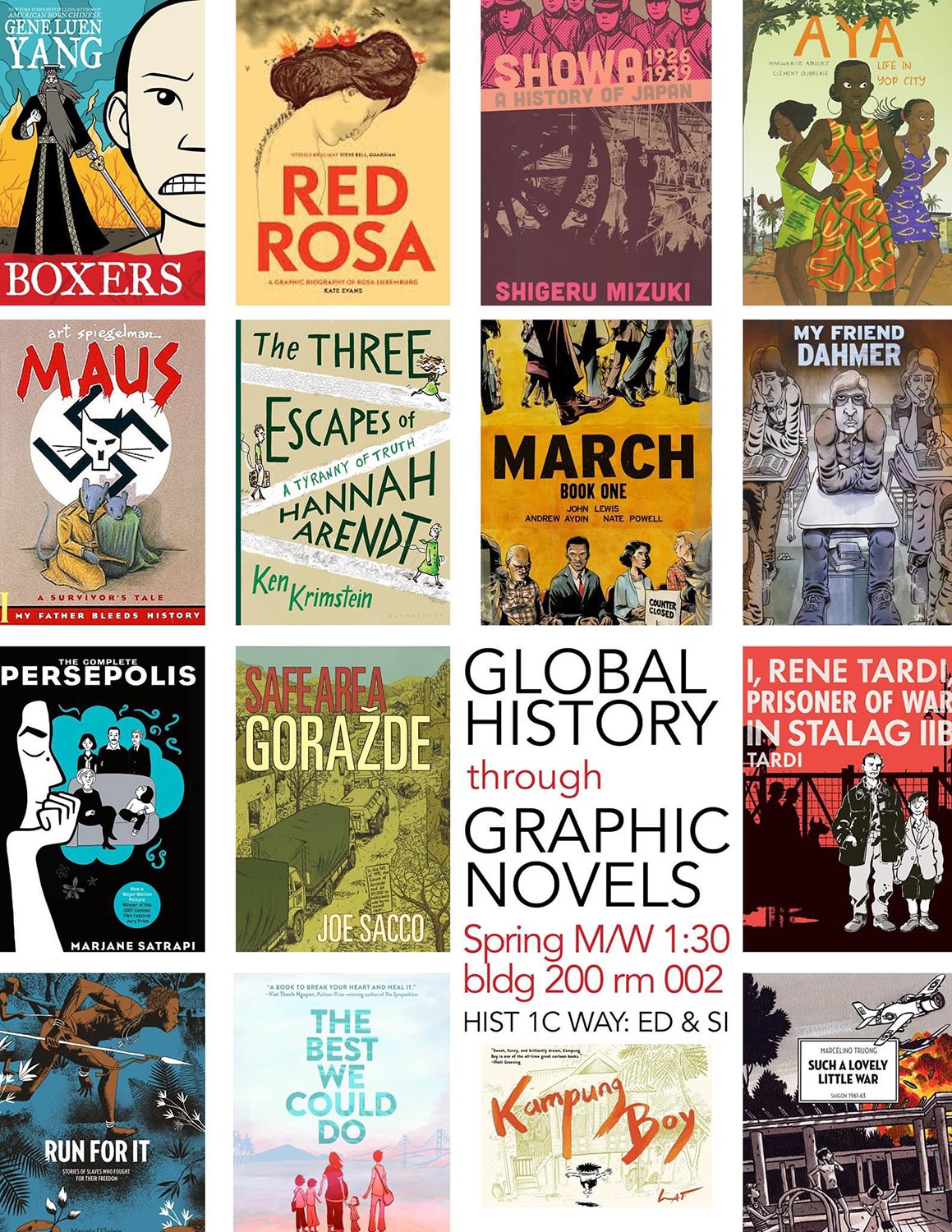
In 2020, Tom Mullaney, a professor of history, taught Global History Through Graphic Novels , a course that paired graphic novels such as Art Spiegelman’s Maus with archival materials and historical essays to examine modern world history from the 18th to the 21st century. He created a poster for the class, as shown here. (Image credit: Tom Mullaney)
In the course, Mullaney paired graphic novels with archival materials and historical essays to examine modern world history from the 18th to the 21st century.
The course syllabus also included the graphic novels Showa , Shigeru Mizuki ’s manga series about growing up in Japan before World War II, and Such a Lovely Little War , about Marcelino Truong’s experience as a child in Saigon during the Vietnam War.
Most recently, Mullaney has offered to teach a variation of the Stanford course to the public, free for high school and college students , this summer.
Registration for the online course opened shortly after news emerged and made international headlines that Maus was banned by a Tennessee school board for its depiction of nudity and use of swear words.
Within two days of Mullaney’s course registration opening, over 200 students from across the world signed up.
Mullaney believes that there is a “fundamental misunderstanding” about what young people can process when it comes to negotiating complex themes and topics – whether it is structural racism or the Holocaust. They just need some guidance, which he hopes as a teacher, he can provide.
“I think students of high school age or even younger, if they have the scaffolding they need – which is the job of educators to give them – they can handle the structural inequalities, darknesses and horrors of life,” he said.
Mullaney noted that many teenagers are already exposed to many of these difficult issues through popular media. “But they’re just doing it on their own and figuring it out for themselves – that’s not a good idea,” he said.
Mullaney said he hopes he can teach Global History Through Graphic Novels to Stanford students again this fall.
For Stanford scholars interested in learning more about the intersection of graphic novels and scholarship, there is a newly established working group through the Division of Literatures, Cultures and Languages, Comics, More than Words .
Media Contacts
Melissa De Witte, Stanford News Service: [email protected]
- India Today
- Business Today
- Reader’s Digest
- Harper's Bazaar
- Brides Today
- Cosmopolitan
- Aaj Tak Campus
- India Today Hindi
Author Anand Neelakantan on how mythology shapes critical thinking among children
Introducing young children to a variety of indian mythology can help create a robust mental foundation that helps develop creativity and cultural awareness, fosters critical thinking, and allows for high levels of inclusivity and tolerance. we spoke to popular mythology-based author anand neelakantan to understand how kids can grow through this blend of education and entertainment..
Listen to Story

The geography we are rooted in, the language(s) we speak, and the timeless tales that go into building the cultural tapestry of a region are all inextricably linked. For thousands of years, generations of children in India have grown up listening to tales of various gods and goddesses or other heroic or villainous figures.
During a child's formative years, these tales shape the way they think. They frame our earliest belief systems around which our personalities develop in adulthood. In a world where diverse cultures and beliefs intersect, the tales from Indian mythology offer a unique avenue for children to grow into tolerant, open-minded, and critical-thinking individuals.
We sat down with renowned author Anand Neelakantan on the sidelines of the Samsung Galaxy Tab S9 Series Jaipur Literature Festival earlier this year to know more about the profound impact these tales can have on young minds.
Neelakantan, known for his engaging retellings of mythological stories such as 'Asura: Tale of the Vanquished,' the Ajaya series focusing on the Mahabharata from the POV of the antiheroes, 'Vanara—the Legend of Baali, Sugreeva, and Tara', and even the prequel for blockbuster Baahubali, has now expanded to writing for children.
In today's age, it is no more easy to make children read, what with their access to a myriad of technological past times to engage them. What Neelakantan wants is to revive the flavour that Amar Chitra Katha's series brought to the 90s kids. He aims to bring these ancient stories to life in a way that is both entertaining and educational for children.
"All my three books (for kids) have been illustrated with beautiful pictures by a couple of very talented cartoonists from Kolkata," he says.
The read-aloud books for young children are filled with mischievous tales of gods and demons, designed to capture the imagination of young readers, all the while imparting certain values. "Just like how grandparents used to tell stories," he says.

And this doesn't even cover the hyperlocal traditions and beliefs.
"So, children shouldn't be restricted to only one kind of story. They should know about all the kinds of stories because there is some form of learning in each of them," says Neelakantan.

"So, a kid may get confused, but they will go and ask. If that happens, parents can tell the child that these are the different forms of the creator and you should be ready to accept. A kid who has grown up with this kind of learning will be ready to accept other belief systems as well," he says.
"If somebody comes and talks about Christ, or Allah, or Budhha, they will just think 'okay this is another God'. So there is no conflict in society. That is how the Hindu society always was. So, you should not restrict learning to one particular sect or narrative. You should celebrate the diversity of the Hindu tradition," Neelakantan adds.
The Ramayana is also a lesson in diversity since it underscores values like respect and tolerance through characters like Hanuman, who bridges gaps between species and classes.
Additionally, tales of gods and goddesses, such as those in the Devi Mahatmya, depict a pantheon of deities with varied forms and attributes, subtly teaching children about the beauty of diversity.
UNDERSTANDING CO-EXISTENCE
When asked about whether he has any favourite tales from Indian mythology, he laughs, saying he had a lot of them. He settles on a favourite 'character' instead -- Lord Shiva.

The author speaks about yet another age-old tradition maintained in India. Devotees of Lord Ayyappa traditionally visit the Vavar Mosque, also known as Ninar Mosque, before journeying 40 kilometres to the Sabarimala temple in Kerala's Periyar Tiger Reserve.
The mosque is a sacred site where devotees pray and pay homage to Vavar, believed to be a Muslim friend and companion of Lord Ayyappa. This unique tradition reflects deep-rooted communal harmony along with a blend of religious traditions and cultural unity in the region.
"This is the Hinduism that the majority follow and not the narrative which has been created now. If Indian children are learning more about these stories, they can co-exist with a lot of communities," he says.

ENCOURAGING CRITICAL THINKING, QUESTIONING AND REASONING
Indian mythology is replete with stories that present moral dilemmas and complex characters, encouraging children to think deeply about right and wrong.
"The biggest example of moral dilemma seen in Indian mythology would be the pinnacle moment in the Mahabharata – Arjuna and Krishna's dicussion before the war where the Bhagavad Gita was narrated," says Anand Neelakantan.
"On Krishna's advice, Arjuna killed so many people. At the end of the war, he asks Krishna, 'What did I achieve?' Krishna says, 'That is for you to decide'. Yudhishthira also goes through a moral dilemma. He asks, 'I inherited a kingdom of widows, what did I achieve with all this war?'" the author adds.
"So, every character goes through a dharmasankat (conflict of moral duty; ethical dilemma) and that is the crux of all these stories – whether the duty I am going to do is right or wrong, and what kind of karma it will incur," he says.
By engaging with these stories, children learn to analyse situations from multiple perspectives, fostering critical thinking.

"It is not like there is one book and if you don't believe it, you go to hell. There are millions of books. If you don't like them, create your own ideas. It's as liberal as that," he adds.
The author pulls out yet another tale to demonstrate how humans dealt with belief in God -- a folk tale from the south about Ramakrishna Paramahansa, as told by sanyasis: Vivekananda once remarked on the fickle beliefs of the people, calling them frauds. In response, Ramakrishna showed him an old man with a stick, a lame man with crutches, and a baby learning to walk.
Ramakrishna explained that belief in God was similar to these supports. When learning something new, like a baby, you need support. As a youth, you don’t need it. If you break your leg or face life’s problems, you need support again. And in old age, you rely on it once more.

"If you can be anything you want, you can be a believer in the morning and a non-believer in the evening. It gives you space to really explore your own mind and come back if you choose to.
Today, if you want to go to a temple because you need to, you go. Tomorrow if you feel this is all nonsense, okay, this is all nonsense," the author laughs.
CONNECTING WITH ONE'S ROOTS
Reading Indian mythology is more than a journey through ancient tales. With its rich tapestry of stories and characters, it’s an enriching experience that equips children with essential life skills, shaping them into thoughtful, empathetic, and tolerant individuals.
In an era of globalisation where a vast number of people across the world are quickly letting go of their distinctly unique cultures, traditions and knowledge bases in favour of the widely circulated and more accepted global culture, encouraging children to dive into the vast expanses of Indian mythology can help ground them in their cultural context while also preparing them to engage with the global community.
By reading Indian mythological tales with these tales, children can develop into well-rounded individuals who are not only tolerant and accepting but also capable of critical thinking and creativity. As Anand Neelakantan aptly puts it, these stories help children to "create their own narrative," embracing the diversity and complexity of the world around them.
The Best Mental Health Books to Read in 2024
Top picks from our most trusted therapists.

Our product picks are editor-tested, expert-approved. We may earn a commission through links on our site. Why Trust Us?
But finding that "right book"? Overwhelming sometimes. So we asked four of our favorite mental health experts— Jay Barnett , Gregory Scott Brown, M.D. , Kier Gaines , and Avi Klein —for their favorite mental health books. We wondered which they go to themselves, which they recommend to clients, and which they think are just plain excellent.
While many of these books can help with aspects of life like reducing stress and living well without overthinking things, if you suspect you might be experiencing anxiety, depression or another mental health condition, it’s important to seek help from a licensed professional, as these books are not meant to provide a diagnosis or provide individual medical advice and treatment.
These books, however, may help you nail down signs to watch for, understand what's going on in and around you, and relate to individuals who have gone through something similar. Here are the favorite books from some of today's most insightful therapists.
Unwinding Anxiety: New Science Shows How to Break the Cycles of Worry and Fear to Heal Your Mind

Recommended by Kier Gaines: "Dr. Brewer lays out, in great detail, how anxiety affects the brain, how to map out better awareness of it and useful tools to cope."
The Anxious Generation: How the Great Rewiring of Childhood Is Causing an Epidemic of Mental Illness

Recommended by: Kier Gaines. "A great book to dissect the epidemic of anxiety."
The Coddling of the American Mind: How Good Intentions and Bad Ideas Are Setting Up a Generation for Failure

Recommended by: Kier Gaines. "A great book to help reframe the mind into conscientious examination of how social conditioning impacts society."
The Gift of Fear

Recommended by: Kier Gaines. "This book helped me understand how to not be disarmed by someone's kindness and become more aware of how fear can be used as a powerful tool."
The Ruthless Elimination of Hurry: How to Stay Emotionally Healthy and Spiritually Alive in the Chaos of the Modern World

Recommended by: Kier Gaines. "This book comes from a more contemporary Christian perspective and it gives a very practical summarization of the ways that unnecessary hurry has crept into our thoughts and habits."
It's Not Always Depression: Working the Change Triangle to Listen to the Body, Discover Core Emotions, and Connect to Your Authentic Self

Recommended by: Avi Klein. "An excellent guide to your emotions and how to foster a better connection with them to improve your wellbeing and foster deeper connections with those closest to you."
When Things Fall Apart: Heart Advice for Difficult Times
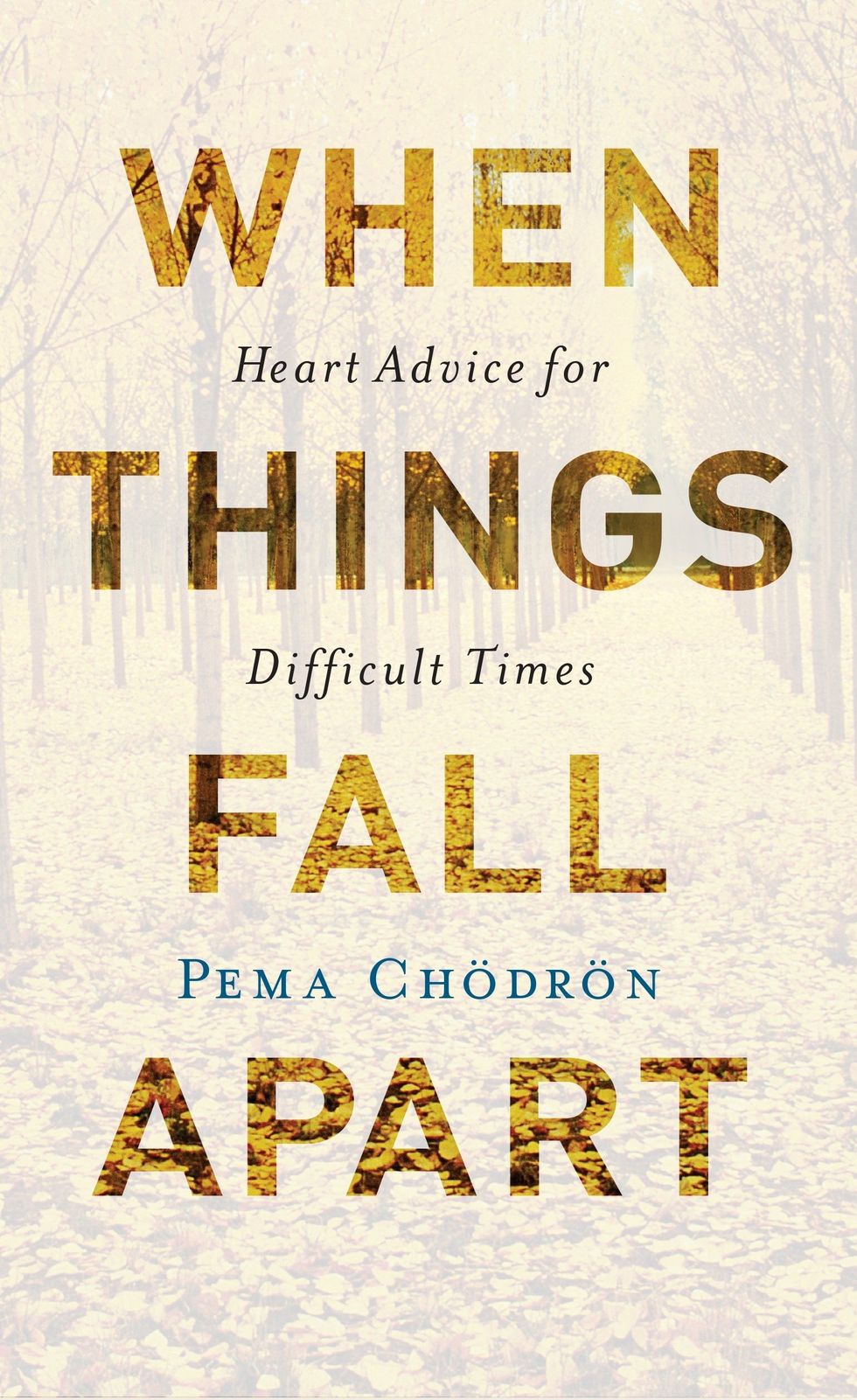
Recommended by: Avi Klein. "I often reach for this book when a client of mine is struggling to accept big changes in their lives. This book helped me through a difficult moment in my life by showing me the rich possibilities for growth (spiritual, emotional, relational) when I accept loss and change in my life instead of fighting it."
Wired for Love: How Understanding Your Partner's Brain and Attachment Style Can Help You Defuse Conflict and Build a Secure Relationship

Recommended by: Avi Klein. "I work with many couples, and this is usually the first book that I recommend to them. It offers a helpful introduction to what creates conflict as well as closer connection in a relationship in a way that helps both people in a couple feel understood."
To Be a Man: A Guide to True Masculine Power

Recommended by: Avi Klein. "To my mind, this is the best book about masculinity and men's emotional wellbeing out there. It offers ways to be a man who is in touch with his emotions without shaming or denigrating our ideas of masculinity."
Workbook For Mind Over Mood: Change How You Feel by Changing the Way You Think by Dennis Greenberger and Christine A. Padesky: 90 Exercises to ... Strategies for Implementing Lasting Change

Recommended by: Dr. Gregory Scott Brown. "I recommend this workbook for learning how cognitive behavioral therapy can prevent negative thoughts from controlling how you act and feel."
The Big Leap: Conquer Your Hidden Fear and Take Life to the Next Level

Recommended by: Dr. Gregory Scott Brown. "I recommend this book if you are indecisive, anxious, or afraid to take the next move toward accomplishing your goals."
Cry Like a Man: Fighting for Freedom from Emotional Incarceration

Recommended by: Jay Barnett. "Jason does a great job of articulating the importance of men possessing the ability to be vulnerable and that tears are necessary because they water the soil for our healing."
Why Didn't Daddy Fix Me?: How To Heal From and Adjust Your Expectations of Fathers and Father Figures

Recommended by: Jay Barnett. "Vincent speaks to many men who are looking for their fathers to correct the issues that we're often plagued with as sons due to the absence of a father. He challenges men to seek healing for their father's wounds so they can experience true attunement in that area."
The Way of the Superior Man: A Spiritual Guide to Mastering the Challenges of Women, Work, and Sexual Desire (20th Anniversary Edition)

Recommended by: Jay Barnett. "David Deida speaks to the many layers of a man and how important it is to navigate with intentionality, grit, and a clear mental and physical focus. He also expounds on the importance of discovering oneself before entering into a romantic relationship, which is critical for any young man's development."

.css-1fpt53b{height:1.25rem;}@media(max-width: 48rem){.css-1fpt53b{overflow:unset;line-height:1.25rem;}}@media(min-width: 48rem){.css-1fpt53b{line-height:1.25rem;}}.css-1fpt53b:before{background-color:#D2232E;color:#fff;margin-right:0.625rem;width:1.25rem;height:1.25rem;content:'';display:block;} Health

Is Taking Appetite Suppressants a Good Idea?

What Happens to Your Body When You're Sedentary

Why Do Men Have Nipples?

5 Pre-Workout Supplements to Enhance Your Routine
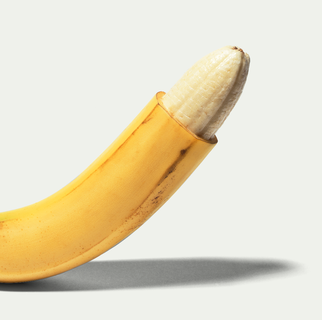
Which Is Better: Uncircumcised or Circumcised?

Why You Can’t Pee With an Erection

How This Olympian Uprooted His Life to Chase Gold

Olympic Swimmer Bobby Finke Talks Training
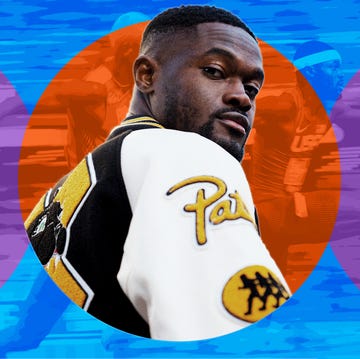
Olympic Runner Rai Benjamin Wants More Than Speed

Olympic Skateboarder Jagger Eaton

Gold Medalist Steve Serio Talks Paralympic Prep

Local News | Lorain Public Library System offers Summer…
Share this:.
- Click to share on Facebook (Opens in new window)
- Click to share on X (Opens in new window)
- Lorain County
- Cuyahoga County
- Opioid Epidemic
Local News | Lorain Public Library System offers Summer Reading Challenge program starting June 10

“The Summer Reading Challenge, one of our most anticipated initiatives of the year, is back with more reading, critical thinking, creativity and fun,” according to a news release.
It will run from June 10 to Aug. 10 and is available to all ages.
Jennifer Winkler, director of community engagement for the Lorain Public Library System, said this summer’s game boards will promote adventures that take place not only in backyards, but around the world.
Patrons can expect to enjoy a variety of STEM-related programs exploring weather-related phenomena, including programs commemorating the 100th anniversary of tornado that devastated Lorain in 1924.
“The Summer Reading Challenge is a fun and engaging way for individuals of all ages to expand their reading interests by discovering new genres, titles and authors,” Winkler said. “As always, library staff are available to offer personalized reading recommendations to help you find the perfect summer, or anytime, read.
“Another benefit of the Summer Reading Challenge is helping to nurture a love of reading, especially in children.”
Winkler said that the stakes for children who do not read during the summer are high as substantial research shows that elementary school students who lose reading skills during the summer will be two years behind their classmates by the end of sixth grade.
It is free to participate in the Summer Reading Challenge, but to be eligible for prizes, participants must register in-person, online or by phone.
Those who register prior to June 24 will be entered to win a pair of tickets to a Lake Erie Crushers home game.
In addition to some smaller participation prizes like mini squish toys, slime, bubble wands and puzzle cubes, there are some grand prizes including Nintendo Switch, LEGO kits, Great Lakes Science Center family passes, astronomy binoculars, giant stuffed animals and more.
Also available for those who complete four game board activities are certificates for free admission to the Ohio State Fair and certificates for a $10 discount on a camping, cabin or getaway lodge stay from Ohio State Parks while supplies last.
New this year is a gameboard specifically for childcare providers, youth summer camps or other organizations providing youth services throughout the summer to earn books for their classrooms or camps.
“Daycares and summer schools can compete in the challenge as a unit,” said Jennifer Black, marketing director for the Lorain Public Library System. “They are playing as like a classroom or as a daycare, and they can win books.”
Multiple classrooms from the same organization can participate.
Books are available while supplies last with a limit of four book prizes per classroom.
There is one institutional grand prize of a literacy-focused STEM kit including a remote-control gear-bot, play rocket, microscope set, puppets and books.
Smokey Bear Challenge
Another challenge available to Lorain Public Library System patrons this summer will be the Smokey Bear Reading Challenge to celebrate the icon’s 80th birthday in collaboration with the USDA Forest Service.
To complete this challenge, children ages 4 to 10 must take the Smokey Bear Pledge, read three or more books on wildfire prevention or the environment and earn four badges by completing one activity in a challenge category.
Winkler said activities are simple, cost-free and explore various wilderness topics, including campfire safety, nature adventure, tree exploration, wildlife science and more.
“They reached out to a lot of the state libraries,” she said. “The whole point of it is to celebrate Smokey Bear’s 80th birthday, but to also educate families, and especially children… It’s to kind of instill a respect of nature, to learn more about the importance of conservation, preservation efforts.”
Smokey Bear Challenge programs will be coordinated by Lorain County Metro Parks.
Books read as part of the Smokey Bear Reading Challenge can be counted toward applicable circles on the Lorain Public Library System Summer Reading Challenge gameboards as well.
More in Local News

Local News | Sen. Sherrod Brown urges government officials for ‘bold, immediate action’ on Bartlett Maritime Corp.’s proposal

Local News | Jurassic movie vehicles coming to African Safari Wildlife Park on June 9
Local news | westwood cemetery anniversary and community reunion in oberlin is june 8.

Crime and Public Safety | Fundraising efforts underway for mother of 3 fatally shot May 26

USA Today Crossword May 31 2024 Answers (5/31/24)
O ur USA Today Crossword May 31, 2024 answers guide should help you finish today’s crossword if you’ve found yourself stuck on a crossword clue. USA Today Crossword is a popular daily puzzle that tests the player’s vocabulary, spelling, and general knowledge skills. The puzzle is available in print and digital format and is enjoyed by people of all ages. The clues can range from easy to challenging and the player must use their critical thinking abilities to solve the puzzle. It is a great way to pass the time and challenge oneself.
USA Today Crossword May 31, 2024 Answers
If you need help solving the USA Today Crossword on 5/31/24, we’ve listed all of the crossword clues below so you can find the answer(s) you need. You can search for the clue and then select the appropriate clue to get the answer. We have done it this way so that if you’re just looking for a handful of clues, you won’t spoil other ones you’re working on!
Looking for answers to another USA Today Crossword puzzle? Check out our archive of USA Today Crossword Answers .
The USA Today Crossword is a daily crossword puzzle that is published in the USA Today newspaper and on its website. The puzzle is known for its contemporary and pop culture references, as well as its accessibility to solvers of all skill levels.
The USA Today Crossword was first introduced in 2002, and has since become a popular source of entertainment and mental stimulation for crossword enthusiasts of all ages. The puzzle is created by a team of experienced crossword constructors, who are known for their creativity and skill in the field of crossword puzzles.
One of the unique features of the USA Today Crossword is its use of a non-standard grid, which can include circles or other shapes. This can make the puzzle even more challenging and interesting to solve. The puzzle also includes a variety of themed sections, which can add an extra layer of complexity to the solving experience.
If you’ve enjoyed this crossword, consider playing one of the other popular crosswords we cover, including: New York Times Crossword (and Mini ), Daily Themed Crossword (and Mini ), LA Times Crossword , and WSJ Crossword .
![Our USA Today Crossword May 31, 2024 answers guide should help you finish today’s crossword if you’ve found yourself stuck on a crossword clue. USA Today Crossword is a popular daily puzzle that tests the player’s vocabulary, spelling, and general knowledge skills. The puzzle is available in print and digital format and is enjoyed by people of all ages. The clues can range from easy to challenging and the player must use their critical thinking abilities to solve the puzzle. It is a great way to pass the time and challenge oneself. USA Today Crossword May 31, 2024 Answers If […] Our USA Today Crossword May 31, 2024 answers guide should help you finish today’s crossword if you’ve found yourself stuck on a crossword clue. USA Today Crossword is a popular daily puzzle that tests the player’s vocabulary, spelling, and general knowledge skills. The puzzle is available in print and digital format and is enjoyed by people of all ages. The clues can range from easy to challenging and the player must use their critical thinking abilities to solve the puzzle. It is a great way to pass the time and challenge oneself. USA Today Crossword May 31, 2024 Answers If […]](https://img-s-msn-com.akamaized.net/tenant/amp/entityid/AA13IWU9.img?w=768&h=432&m=6)

- Business & Money

Enjoy fast, free delivery, exclusive deals, and award-winning movies & TV shows with Prime Try Prime and start saving today with fast, free delivery
Amazon Prime includes:
Fast, FREE Delivery is available to Prime members. To join, select "Try Amazon Prime and start saving today with Fast, FREE Delivery" below the Add to Cart button.
- Cardmembers earn 5% Back at Amazon.com with a Prime Credit Card.
- Unlimited Free Two-Day Delivery
- Streaming of thousands of movies and TV shows with limited ads on Prime Video.
- A Kindle book to borrow for free each month - with no due dates
- Listen to over 2 million songs and hundreds of playlists
- Unlimited photo storage with anywhere access
Important: Your credit card will NOT be charged when you start your free trial or if you cancel during the trial period. If you're happy with Amazon Prime, do nothing. At the end of the free trial, your membership will automatically upgrade to a monthly membership.
Buy new: .savingPriceOverride { color:#CC0C39!important; font-weight: 300!important; } .reinventMobileHeaderPrice { font-weight: 400; } #apex_offerDisplay_mobile_feature_div .reinventPriceSavingsPercentageMargin, #apex_offerDisplay_mobile_feature_div .reinventPricePriceToPayMargin { margin-right: 4px; } -6% $31.27 $ 31 . 27 FREE delivery Friday, June 7 on orders shipped by Amazon over $35 Ships from: Amazon Sold by: Wagon Express LLC
Return this item for free.
Free returns are available for the shipping address you chose. You can return the item for any reason in new and unused condition: no shipping charges
- Go to your orders and start the return
- Select your preferred free shipping option
- Drop off and leave!
Save with Used - Good .savingPriceOverride { color:#CC0C39!important; font-weight: 300!important; } .reinventMobileHeaderPrice { font-weight: 400; } #apex_offerDisplay_mobile_feature_div .reinventPriceSavingsPercentageMargin, #apex_offerDisplay_mobile_feature_div .reinventPricePriceToPayMargin { margin-right: 4px; } $20.02 $ 20 . 02 FREE delivery June 12 - 14 on orders shipped by Amazon over $35 Ships from: Amazon Sold by: BLESSEDLIVES.STORE

Download the free Kindle app and start reading Kindle books instantly on your smartphone, tablet, or computer - no Kindle device required .
Read instantly on your browser with Kindle for Web.
Using your mobile phone camera - scan the code below and download the Kindle app.

Image Unavailable

- To view this video download Flash Player

Follow the author

Critical thinking, Logic & Problem Solving: The Ultimate Guide to Better Thinking, Systematic Problem Solving and Making Impeccable Decisions with Secret Tips to Detect Logical Fallacies Paperback – November 15, 2022
Purchase options and add-ons.
------------------- ➤ With this book you also GET EXCLUSIVE ACCESS to 1)Our Q&A Premium Service, 2)the ebooklet "System Thinking Principles". Discover how inside the book! ------------------- What are the most important skills to develop in the times we live in? How can you make better Decisions?
In this age of fake news, social media, and information overload, critical thinking, logic, and problem-solving are probably the most vital skills to develop for success .
Critical Thinking, Logic & Problem Solving are critical parts of our daily life, and mastering these skills increases our ability to think well and take impeccable decisions. It also enables us to understand the reasons why the current state is what it is and the forces and factors that influence it, and develop approaches and alternatives to influence and implement changes.
What is the problem then? The problem is that the current education system doesn't teach us well or at all any of these skills . And that is the main cause of failure and underutilization of people’s potential.
This Guide was built with the objective to put an end to this problem and to give you the most effective tools to establish the habit of thinking critically and logically and solving any problem that you may face in the best way possible . This book includes 3 parts plus 1 bonus: 1) Critical Thinking 2) Logic, Structuring & Framing 3) Problem Solving 4) BONUS: Achieving Clear and Effective Communication
Here is a tiny fraction of what you will discover inside: - How to use the critical thinking framework - Removing mental barriers to critical thinking - Learning to ask the right questions - Detecting Fallacies - Recognizing Fake News and Misinformation - Deductive vs Inductive Reasoning - Leveraging Patterns and Trends - Exercises to Develop Critical Thinking - How to Manage your Emotions to get into the right Critical Thinking zone and mindset - The Key Frameworks to frame and describe problems - How to Use Issues Trees, Logic Flow Trees and Decision Trees - The Problem-Solving Process and How to Think like a Scientist - Mastering PROS and CONS assessment - Prioritization Matrices - Decision Matrices - Organizing Action - How to leverage constraints to get more creative - Organizing your communication - The best Storytelling techniques for effective communications and presentations And much more!
This collection is not only a theory book , it will give you the opportunity to practice what you learn so that you can gain momentum and absorb effortlessly this powerful knowledge . In no time you will be able to make more powerful arguments, take confident decisions and discover any error in logic . Critical thinking, Logic and Problem-Solving will help you improve multiple areas of your life from the personal sphere to the professional one. If you are looking for the best in class and a fast track to Master Critical Thinking, Logic and Problem Solving look no further.
Do Not Wait any longer and Grab Your Copy Now!
- Print length 109 pages
- Language English
- Publication date November 15, 2022
- Dimensions 8 x 0.25 x 10 inches
- ISBN-13 979-8363860713
- See all details

Frequently bought together

Similar items that may deliver to you quickly

Get to know this book
Popular highlight
From the publisher.

Product details
- ASIN : B0BMDL2PP9
- Publisher : Independently published (November 15, 2022)
- Language : English
- Paperback : 109 pages
- ISBN-13 : 979-8363860713
- Item Weight : 9.1 ounces
- Dimensions : 8 x 0.25 x 10 inches
- #55 in Scientific Experiments & Projects
- #114 in Consulting
- #156 in Philosophy of Logic & Language
About the author
Bigrocks thinking.
Discover more of the author’s books, see similar authors, read author blogs and more
Customer reviews
Customer Reviews, including Product Star Ratings help customers to learn more about the product and decide whether it is the right product for them.
To calculate the overall star rating and percentage breakdown by star, we don’t use a simple average. Instead, our system considers things like how recent a review is and if the reviewer bought the item on Amazon. It also analyzed reviews to verify trustworthiness.
- Sort reviews by Top reviews Most recent Top reviews
Top reviews from the United States
There was a problem filtering reviews right now. please try again later..
Top reviews from other countries
- Amazon Newsletter
- About Amazon
- Accessibility
- Sustainability
- Press Center
- Investor Relations
- Amazon Devices
- Amazon Science
- Sell on Amazon
- Sell apps on Amazon
- Supply to Amazon
- Protect & Build Your Brand
- Become an Affiliate
- Become a Delivery Driver
- Start a Package Delivery Business
- Advertise Your Products
- Self-Publish with Us
- Become an Amazon Hub Partner
- › See More Ways to Make Money
- Amazon Visa
- Amazon Store Card
- Amazon Secured Card
- Amazon Business Card
- Shop with Points
- Credit Card Marketplace
- Reload Your Balance
- Amazon Currency Converter
- Your Account
- Your Orders
- Shipping Rates & Policies
- Amazon Prime
- Returns & Replacements
- Manage Your Content and Devices
- Recalls and Product Safety Alerts
- Conditions of Use
- Privacy Notice
- Consumer Health Data Privacy Disclosure
- Your Ads Privacy Choices

IMAGES
VIDEO
COMMENTS
The best books on critical thinking: Table of Contents [ show] 1. Critical Thinking: A Beginner's Guide to Critical Thinking, Better Decision Making, and Problem Solving - Jennifer Wilson. $12.38. Buy on Amazon. 03/08/2024 04:56 pm GMT. As the title says, this book introduces you to the art of critical thinking.
Thinking from A to Z. by Nigel Warburton. Read. 1 Calling Bullshit: The Art of Skepticism in a Data-Driven World by Carl Bergstrom & Jevin West. 2 Thinking, Fast and Slow by Daniel Kahneman. 3 Factfulness: Ten Reasons We're Wrong About The World — And Why Things Are Better Than You Think by Hans Rosling. 4 Black Box Thinking: The Surprising ...
Best Books on Critical Thinking Dive into the realm of logic and reason with this collection - the most recommended books on critical thinking, curated based on frequent recommendations from leading book blogs and publications. ... presents a pragmatic set of tools and real world examples to help you think purposefully and make better ...
avg rating 4.16 — 21,482 ratings — published 2016. Want to Read. Rate this book. 1 of 5 stars 2 of 5 stars 3 of 5 stars 4 of 5 stars 5 of 5 stars. Books shelved as critical-thinking: Asking the Right Questions: A Guide to Critical Thinking by M. Neil Browne, Factfulness: Ten Reasons We're Wrong Abou...
This very readable and approachable book on critical thinking is a great introduction for those who are wondering what critical thinking is, as well as an insightful history of the topic. ... critical thinking hasn't become less important as digital resources and tools help us think and do in the 21st Century--in fact, Mr. Haber provides ...
Few books in this field approach the topic with personality types in mind. That's why I recommend Stuart Hanscomb's Critical Thinking: The Basics.. Looking at your personal dispositions can help you avoid many of the problems created by emotions and cognitive biases.. You may even want to go further by looking into the OCEAN model to help better understand how your personality might help ...
Critical thinking is self-guided, self-disciplined thinking which attempts to reason at the highest level of quality in a fair-minded way. People who think critically strive to always improve their reasoning abilities and to be aware of the common pitfalls of human reasoning - irrationality, prejudices, biases, distortions, uncritically accepted social rules and taboos, self-interest, and ...
The 20 best critical thinking books recommended by Robin Ince, Michael Shermer, Richard Dawkins and Nassim Nicholas Taleb.
The Power of Critical Thinking: Effective Reasoning About Ordinary and Extraordinary Claims, Sixth Edition, provides the broadest range of tools to show students how critical thinking applies in their lives and the world around them. It explores the essentials of critical reasoning, argumentation, logic, and argumentative essay writing while also incorporating important topics that most other ...
Books. Critical Thinking. Jonathan Haber. MIT Press, Apr 7, 2020 - Education - 232 pages. An insightful guide to the practice, teaching, and history of critical thinking—from Aristotle and Plato to Thomas Dewey—for teachers, students, and anyone looking to hone their critical thinking skills. Critical thinking is regularly cited as an ...
For critical thinking, practice analyzing situations from multiple perspectives and questioning assumptions. Do books help with critical thinking? Yes, reading books, especially those on subjects like logic, philosophy, and problem-solving, can significantly enhance critical thinking skills.
3 The Top 20 Books on Critical Thinking. 3.1 1.) Critical Thinking ; Logic Mastery (Series by Thinknetic) 3.2 2.) Critical Thinking and the Analytical Mind by Marcus P. Dawson. 3.3 3.) Critical Thinking: The 12 Rules for Intelligent Thinking by Jason Dyer. 3.4 4.) 50 Strategies to Boost Cognitive Engagement by Rebecca Stobaugh.
The book emphasizes the relevance of critical thinking in both academic and real-world contexts, showing the knowledge, methods, and skills needed to avoid making poor judgments, evaluate ...
Best Books on Critical Thinking: Our Top 20 Picks. Here are some of the best critical thinking books that you can consider to expand your knowledge on the subject: 1. Critical Thinking Skills for Dummies. Check Price on Amazon. Of Course, we all are already aware of the "For Dummies" series.
The Ultimate Guide to Critical Thinking for Beginners is your fast-track to becoming an information ninja. Stop feeling overwhelmed and start feeling empowered. This book will teach you to:. * Unmask bias: Break free from the mental manipulation and hidden agendas lurking in information.
The Top 10 Books on Critical Thinking. Critical thinking is an essential skill that helps us navigate the complexities of the world around us. It enables us to analyze information, evaluate arguments, and make informed decisions. If you're looking to improve your critical thinking skills, here are ten books that can help you on your journey.
The 14 best critical thinking books for beginners. BookAuthority; BookAuthority is the world's leading site for book recommendations, helping you discover the most recommended books on any subject.
Master Critical Thinking, Creative, Logic & Problem Solving Skills (4 Books in 1): Develop Deep Thinking Skills to Make Smarter Decisions and Solve Problems in Any Situation. by William Henderson. 52. Paperback. $1997. FREE delivery Mon, Jun 3 on $35 of items shipped by Amazon. Other format: Kindle.
Critical Thinking and Problem Solving Books to read in 2024 to broaden your knowledge in Career and Success. User verified book suggestions such as 'The Great Mental Models' and 'How to Have Impossible Conversations ' by top notch authors like Shane Parrish and Rhiannon Beaubien and Peter Boghossian and James A. Lindsay.
Critical Thinking Books of All Time. Our goal: Find the best Critical Thinking books according to the internet (not just one random person's opinion).. Here's what we did:; Type "best critical thinking books" into our search engine and study the top 4+ pages.; Add only the books mentioned 2+ times.; Rank the results neatly for you here! 😊 (It was a lot of work.
Fooled by Randomness is a standalone book in Nassim Nicholas Taleb's landmark Incerto series, an investigation of opacity, luck, uncertainty, probability, human error, risk, and decision-making in a world we don't understand. Philosophy books. Epistemology by Richard Feldman 3.84 · Rating details · 182 ratings.
Mullaney has incorporated graphic novels in some of his Stanford courses since 2017; in 2020, he taught a course dedicated to the study of world history through comic strip formats.
Introducing young children to a variety of Indian mythology can help create a robust mental foundation that helps develop creativity and cultural awareness, fosters critical thinking, and allows for high levels of inclusivity and tolerance. We spoke to popular mythology-based author Anand Neelakantan to understand how kids can grow through this blend of education and entertainment.
Recommended by Kier Gaines: "Dr. Brewer lays out, in great detail, how anxiety affects the brain, how to map out better awareness of it and useful tools to cope." Now 34% Off. $20 at Amazon $20 at ...
Building Thinking Skills Level 1 (Color) Workbook - Critical Thinking Skills for Reading, Writing, Math, & Science for Grades 2-3. by Sandra Parks and Howard Black. 9. Paperback. $4095. FREE delivery Wed, Aug 30. Or fastest delivery Aug 25 - 29. Small Business. More Buying Choices.
Learning to be a critical consumer of information and thinking before you share can help protect everyone from false information online. ... this book explores what psychology tells us about development and persistence of false perceptions and beliefs and the difficulty of correcting them, plus ways to debunk misinformation and think critically ...
Book Review: Against critical thinking in health, ... Based on: Grimwood Tom, Against critical thinking in health, social care and social work reframing philosophy for professional practice. Taylor & Francis, 2023; 176 pp., ISBN 9780367642358, $130 (h/c) ... Need help? View options PDF/ePub View PDF/ePub Full Text View Full Text.
The Lorain Public Library System is gearing up for a summer of reading."The Summer Reading Challenge, one of our most anticipated initiatives of the year, is back with more reading, critical ...
The clues can range from easy to challenging and the player must use their critical thinking abilities to solve the puzzle. It is a great way to pass the time and challenge oneself.
Critical thinking, Logic and Problem-Solving will help you improve multiple areas of your life from the personal sphere to the professional one. ... In short, this is a book for critical thinking generalists who want to touch on everything, but if you want to specialise in critical thinking, you need other books. Read more.